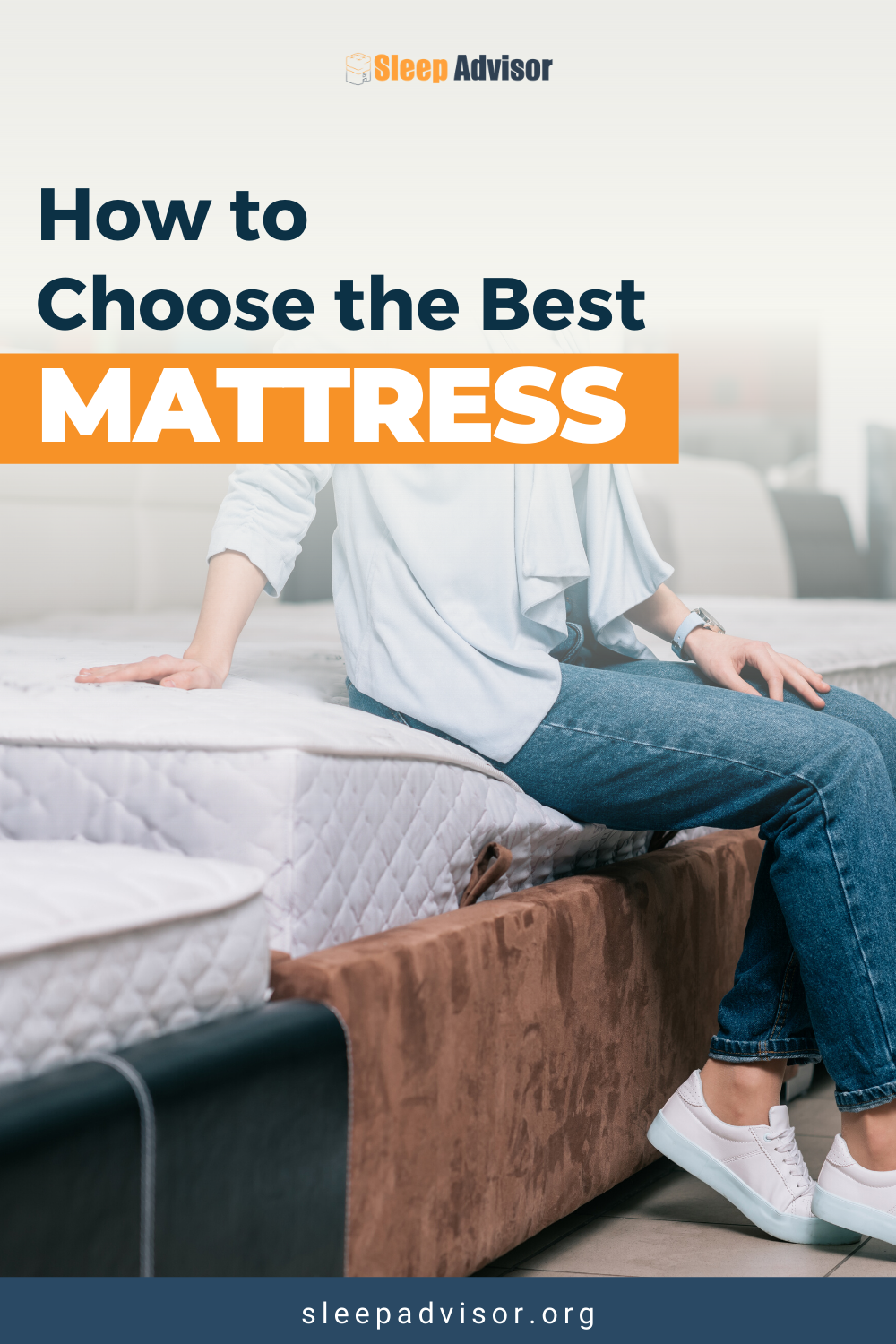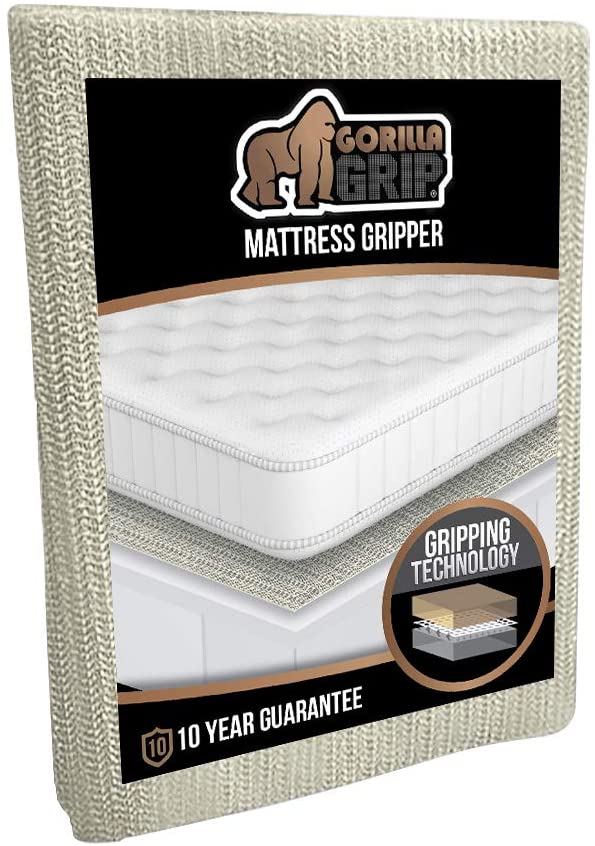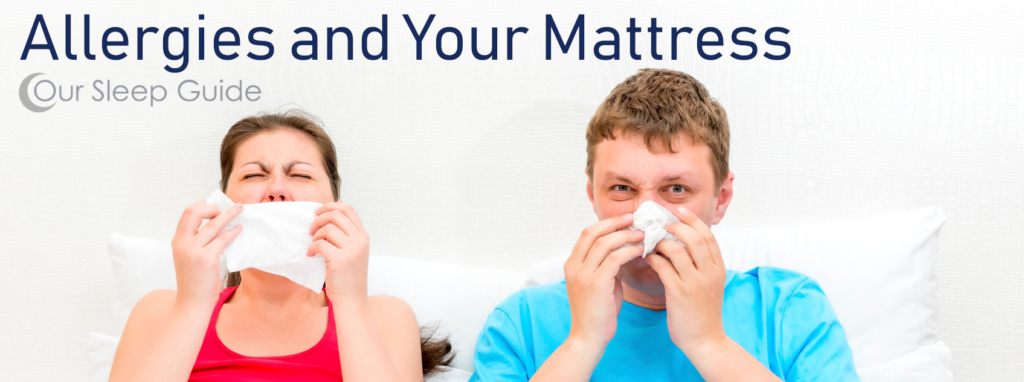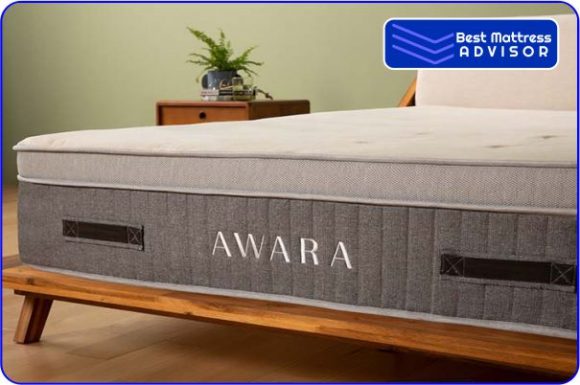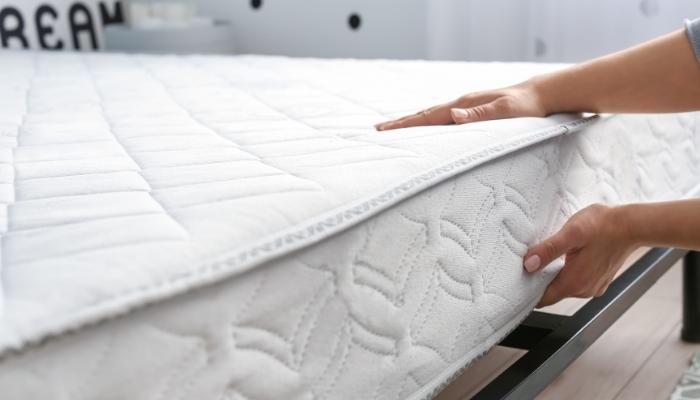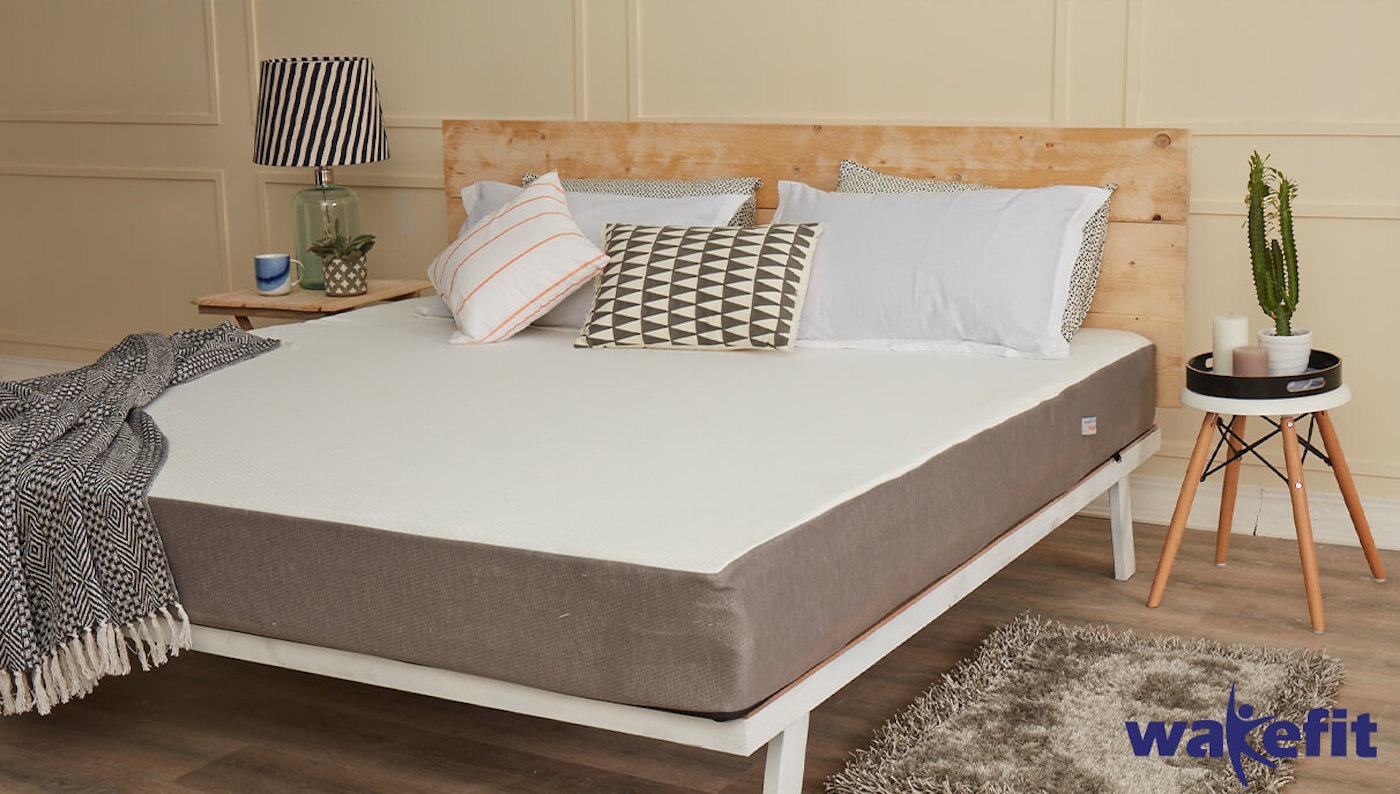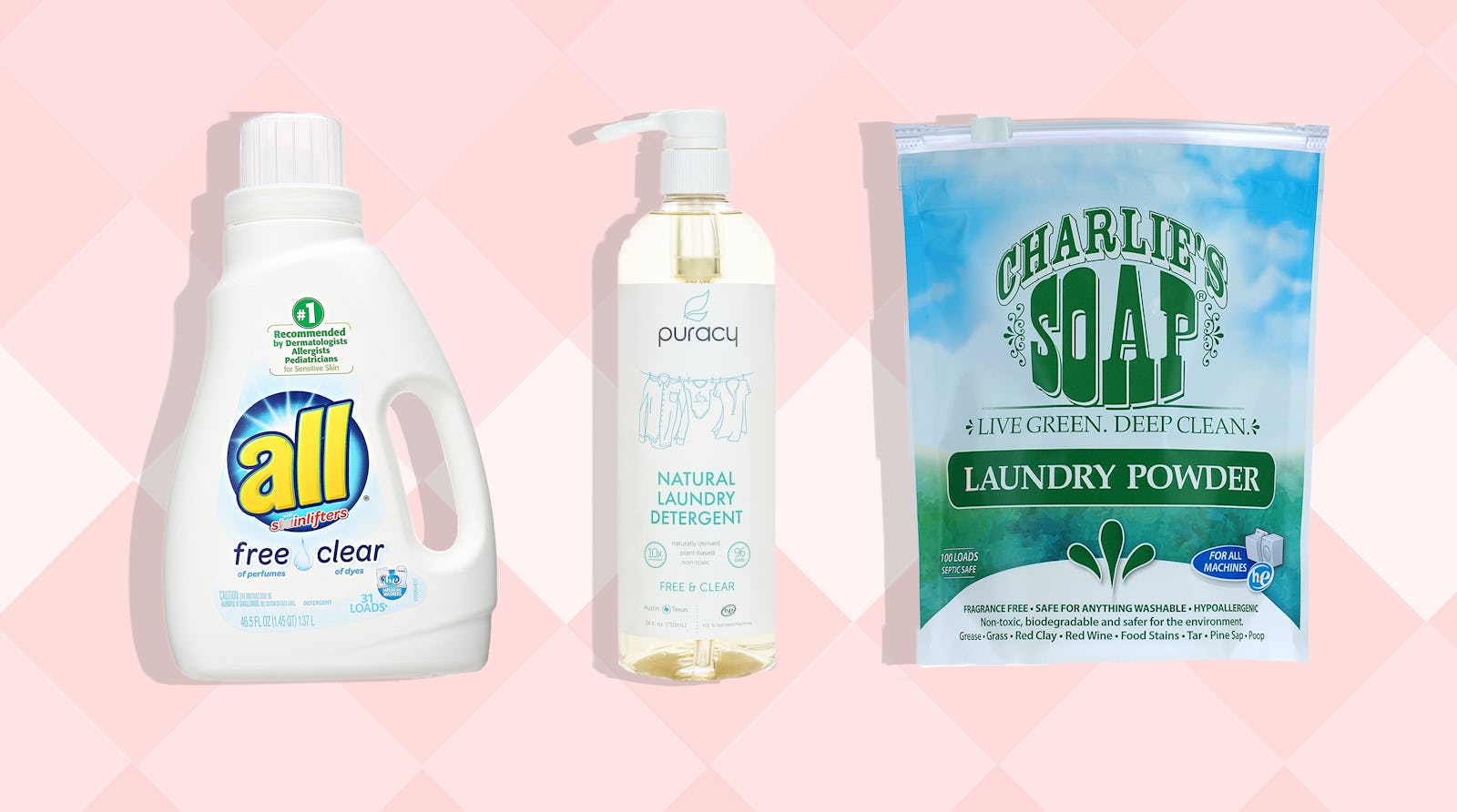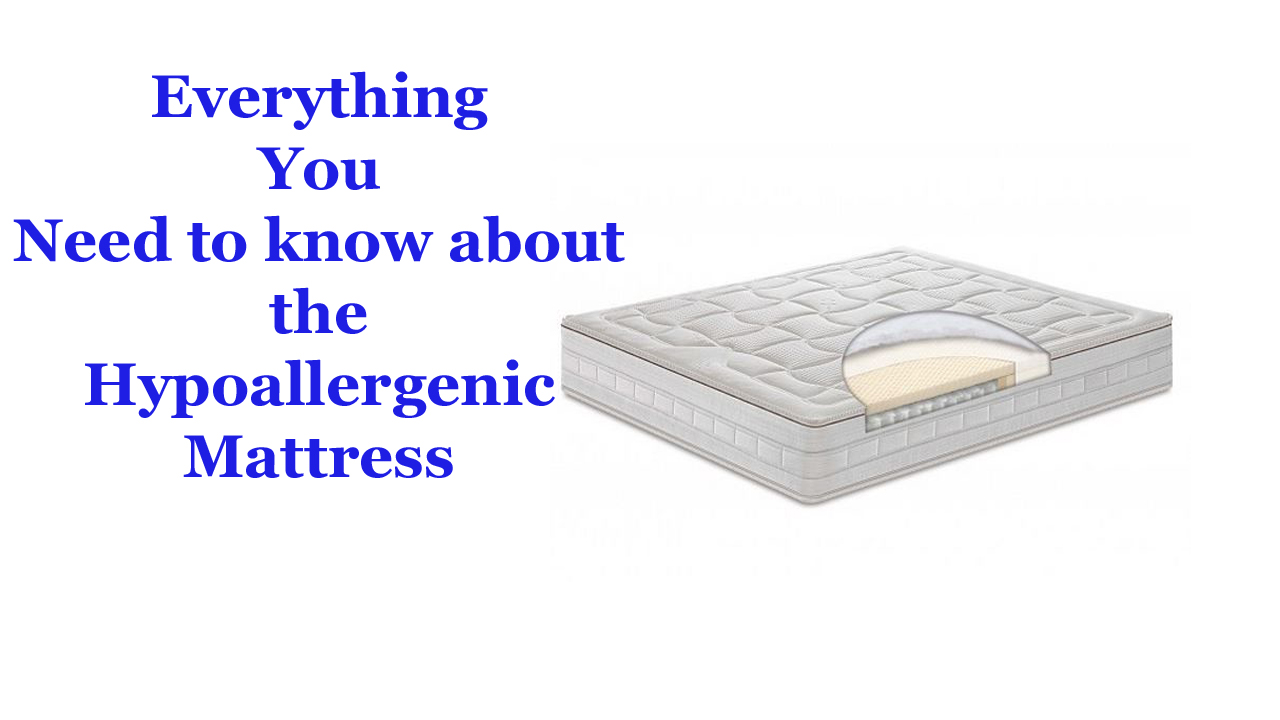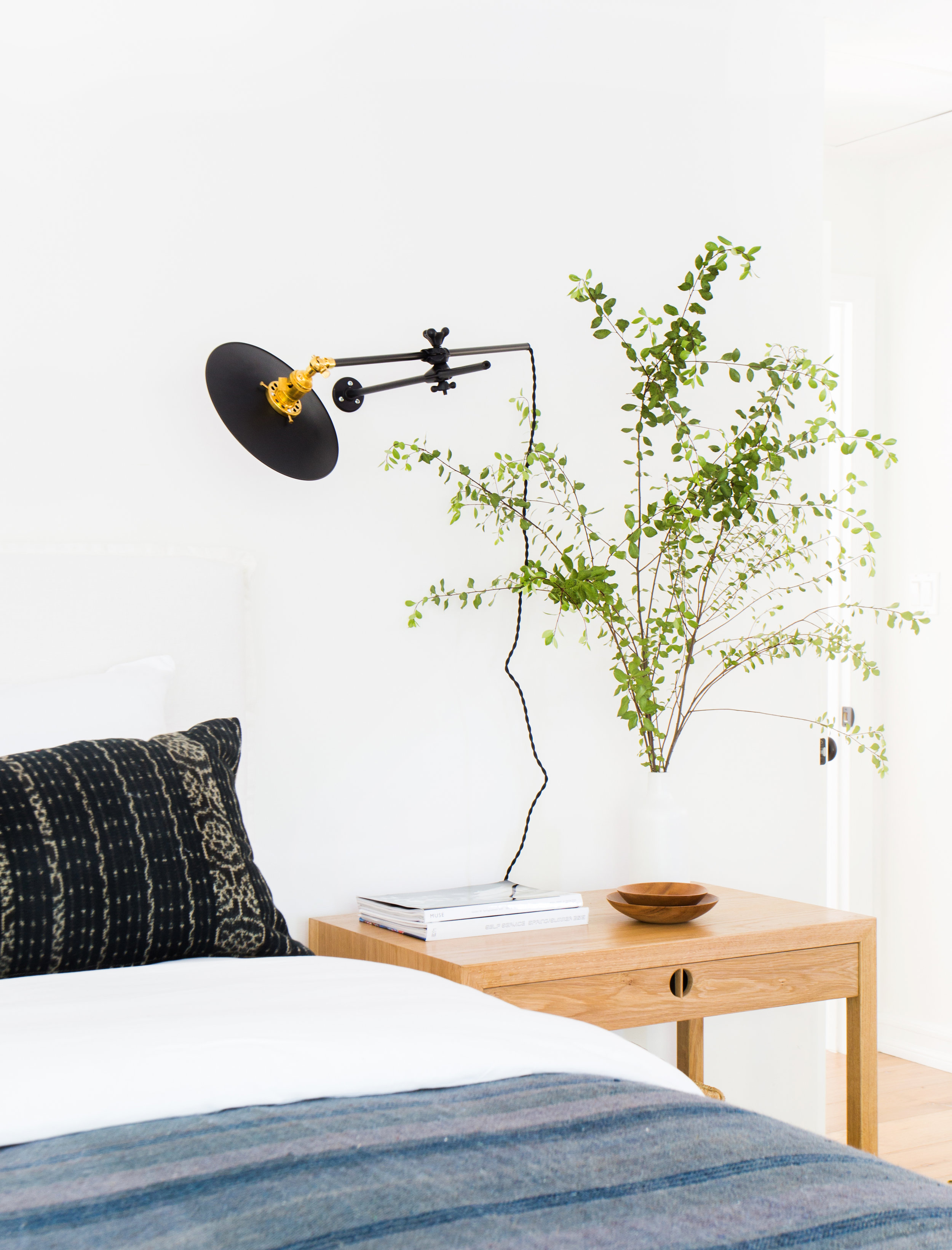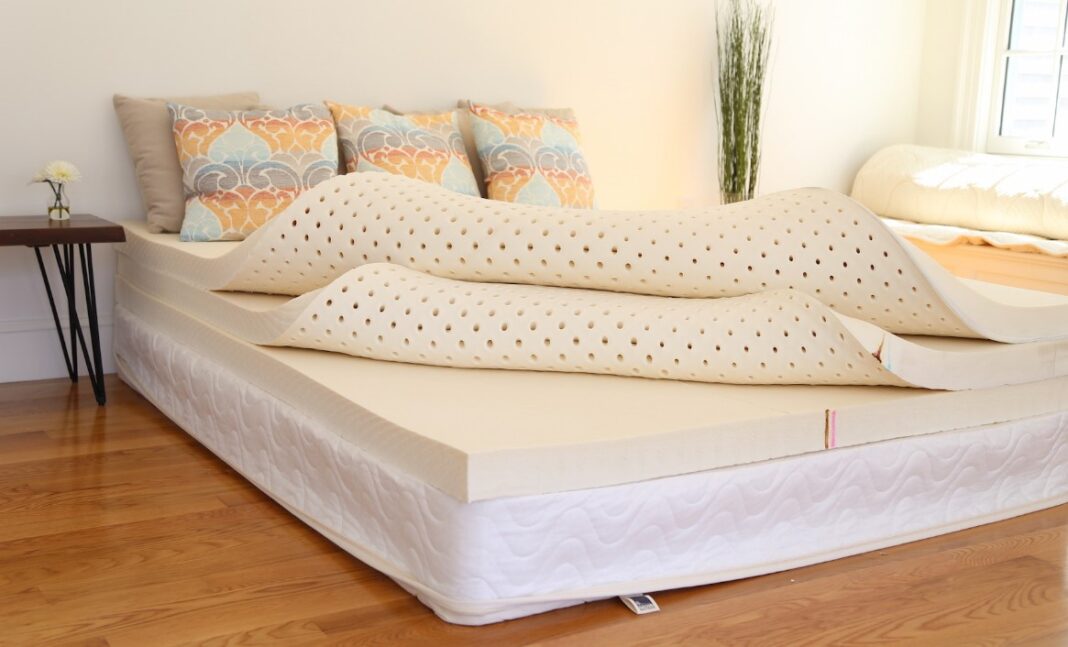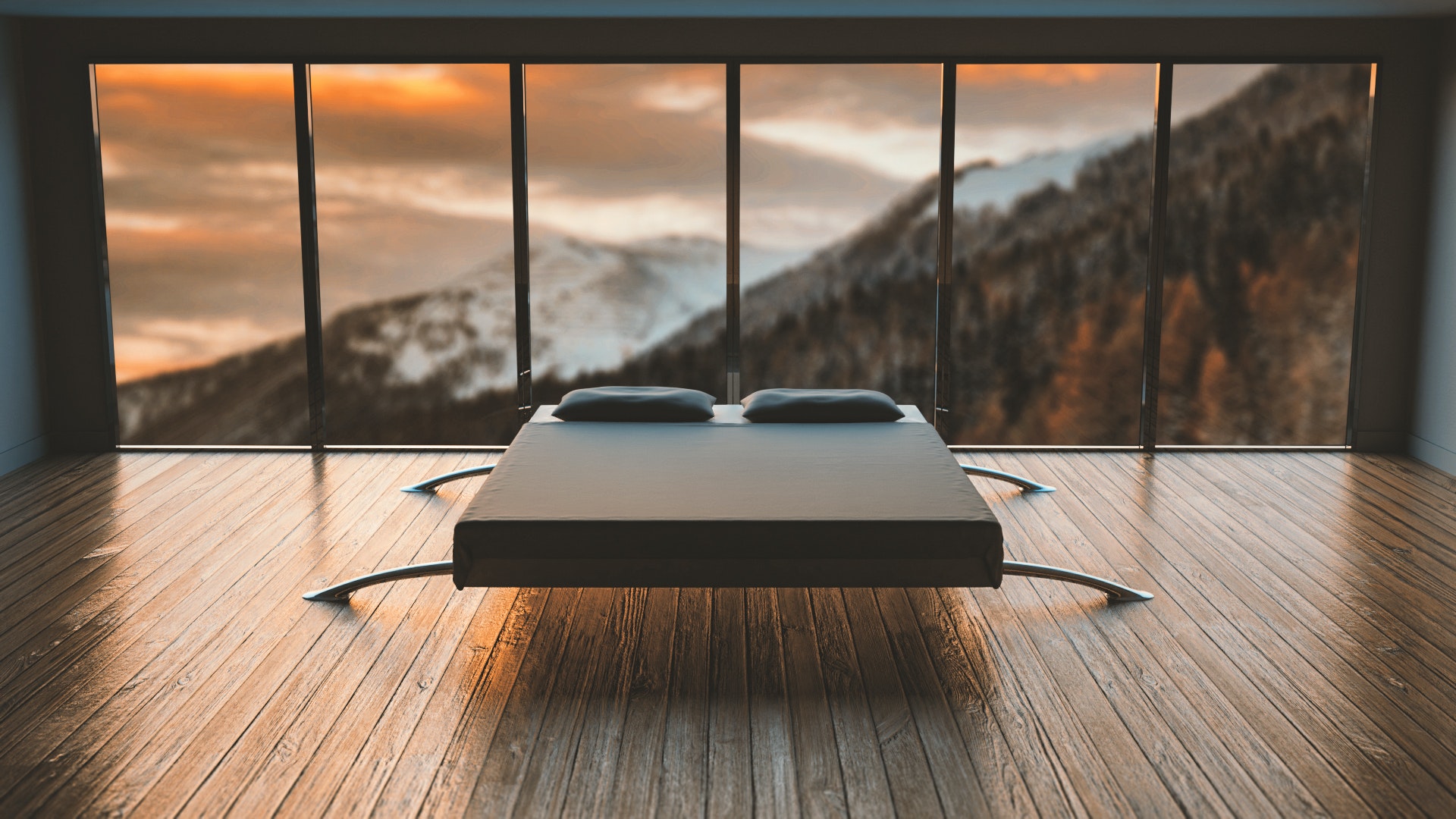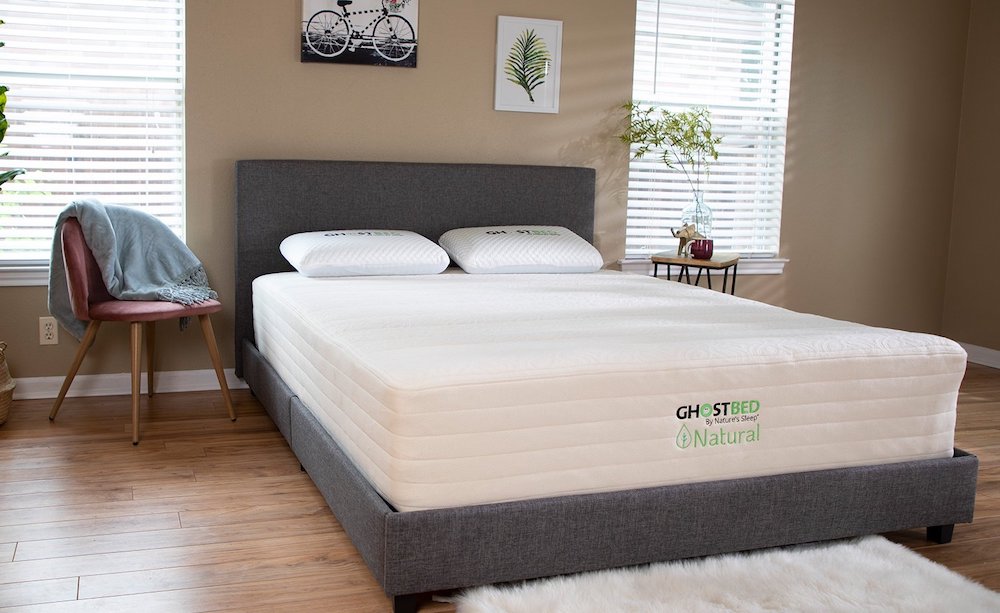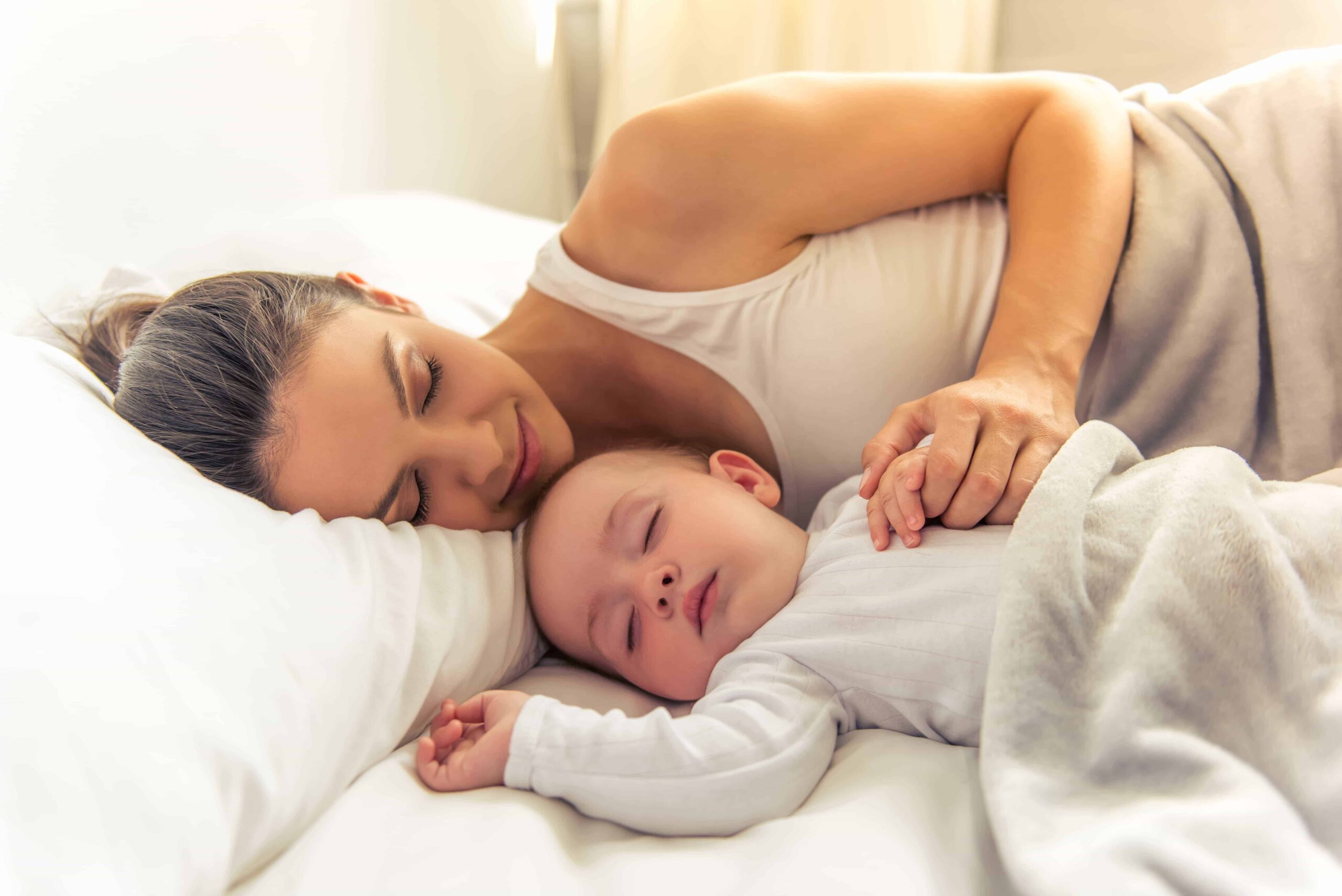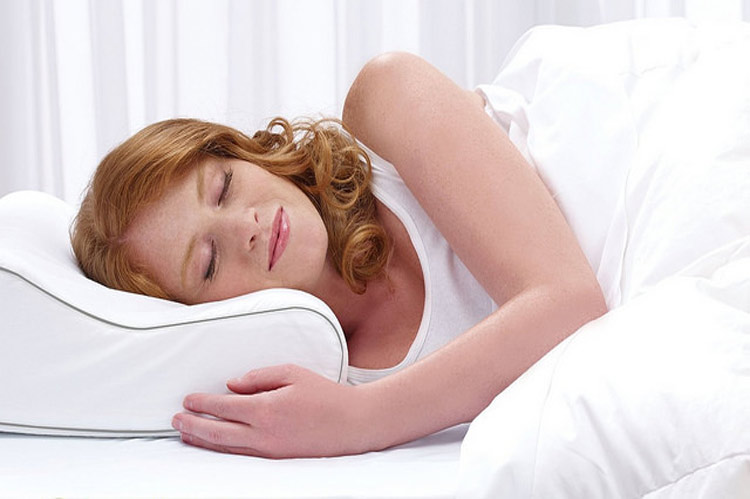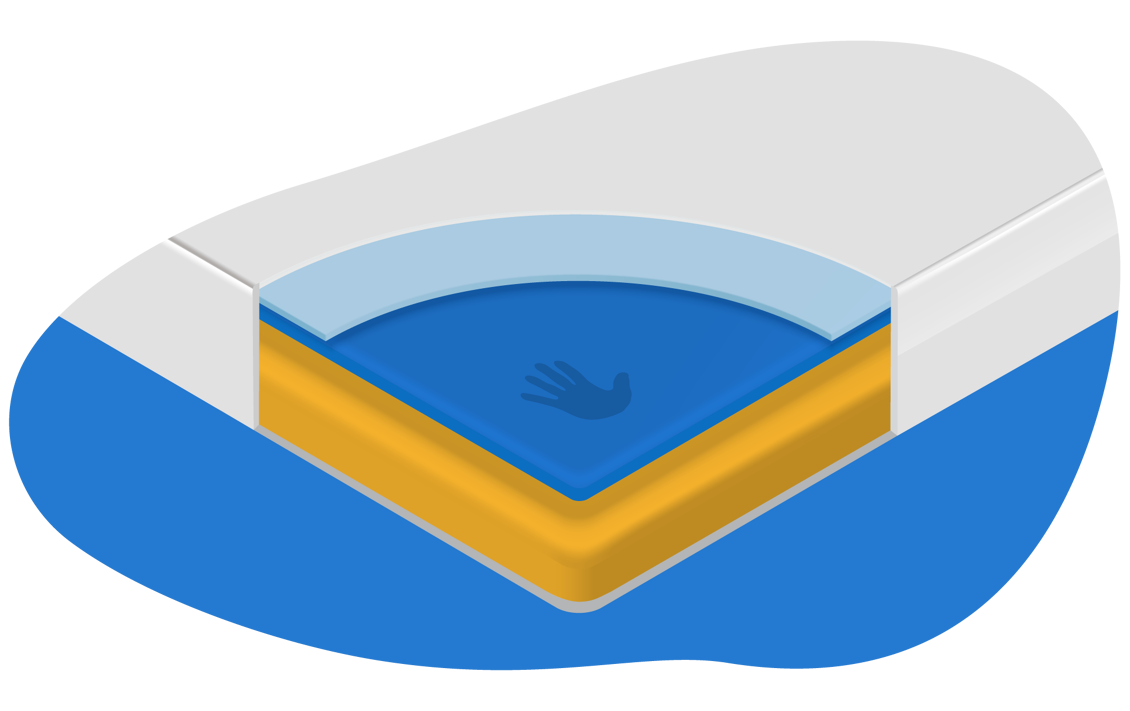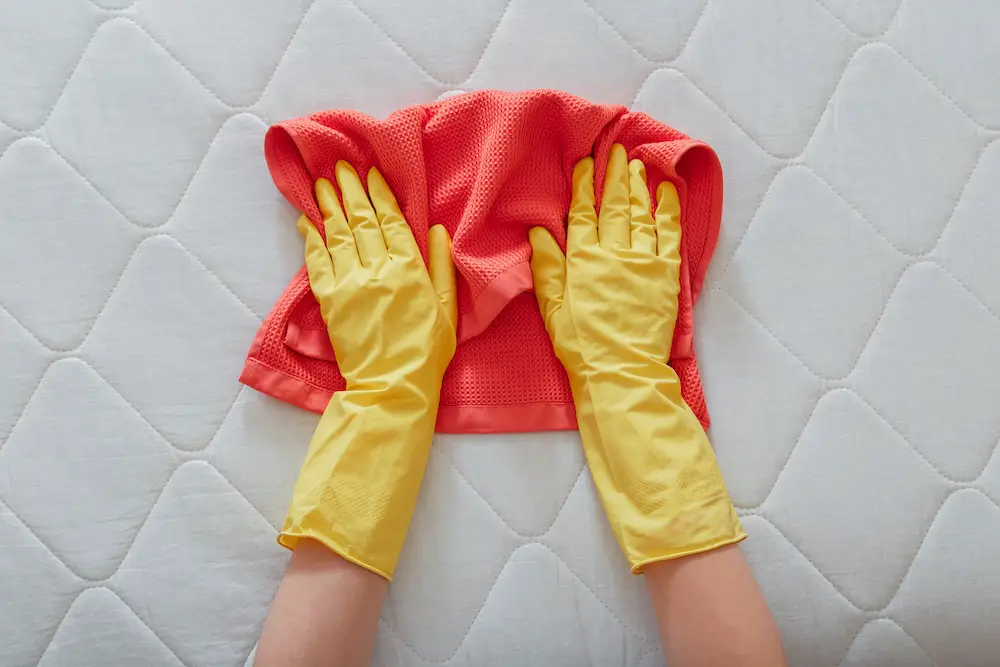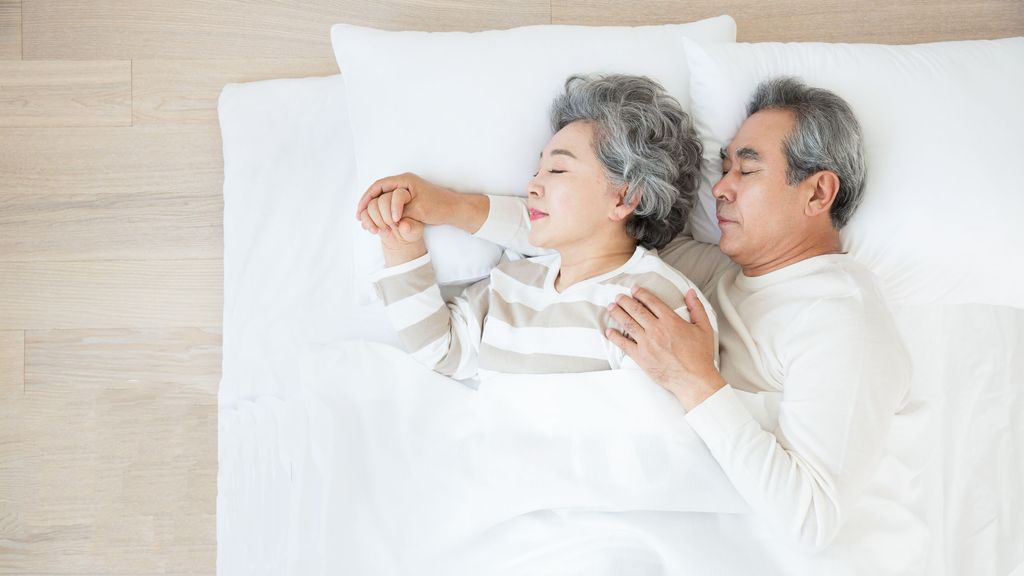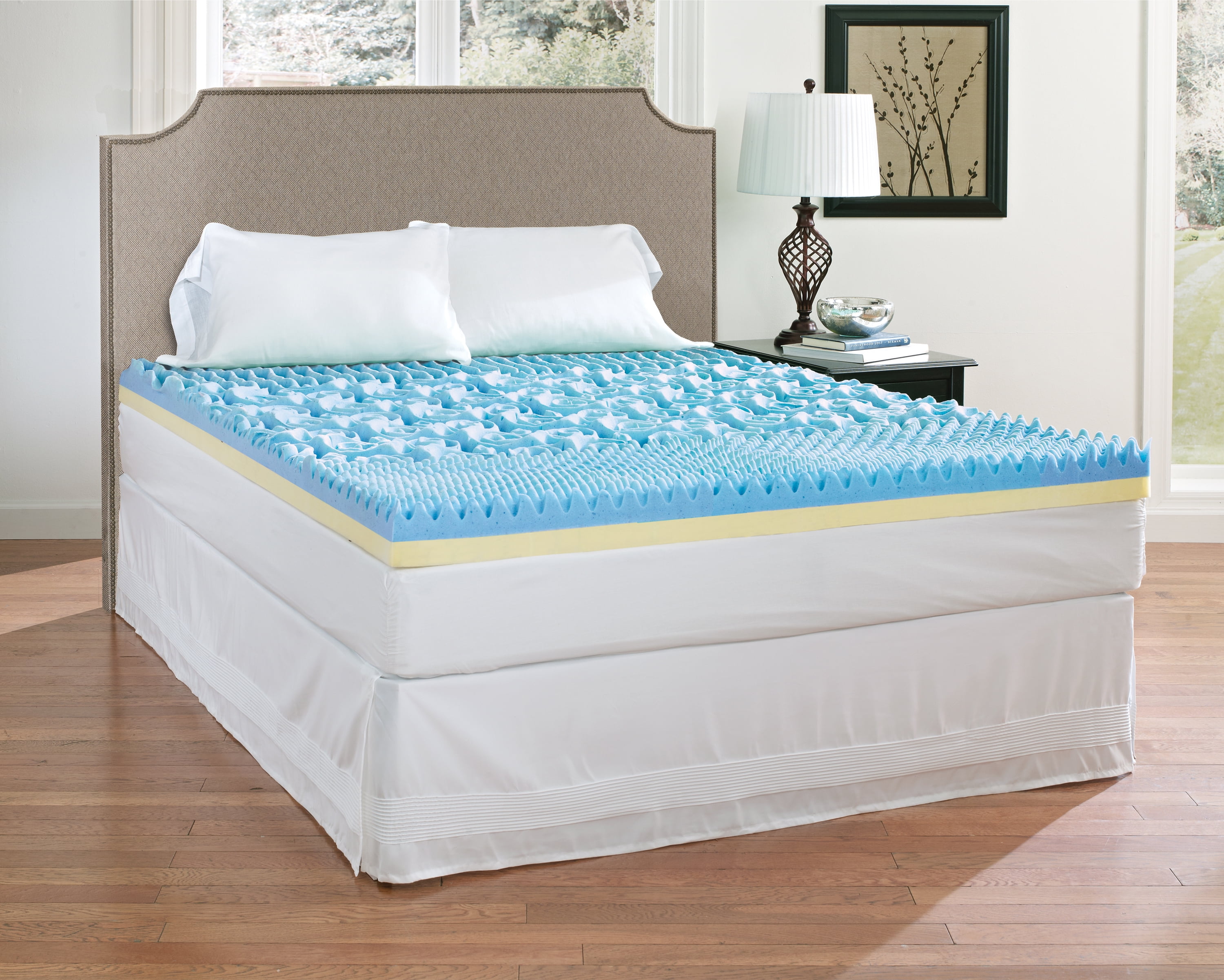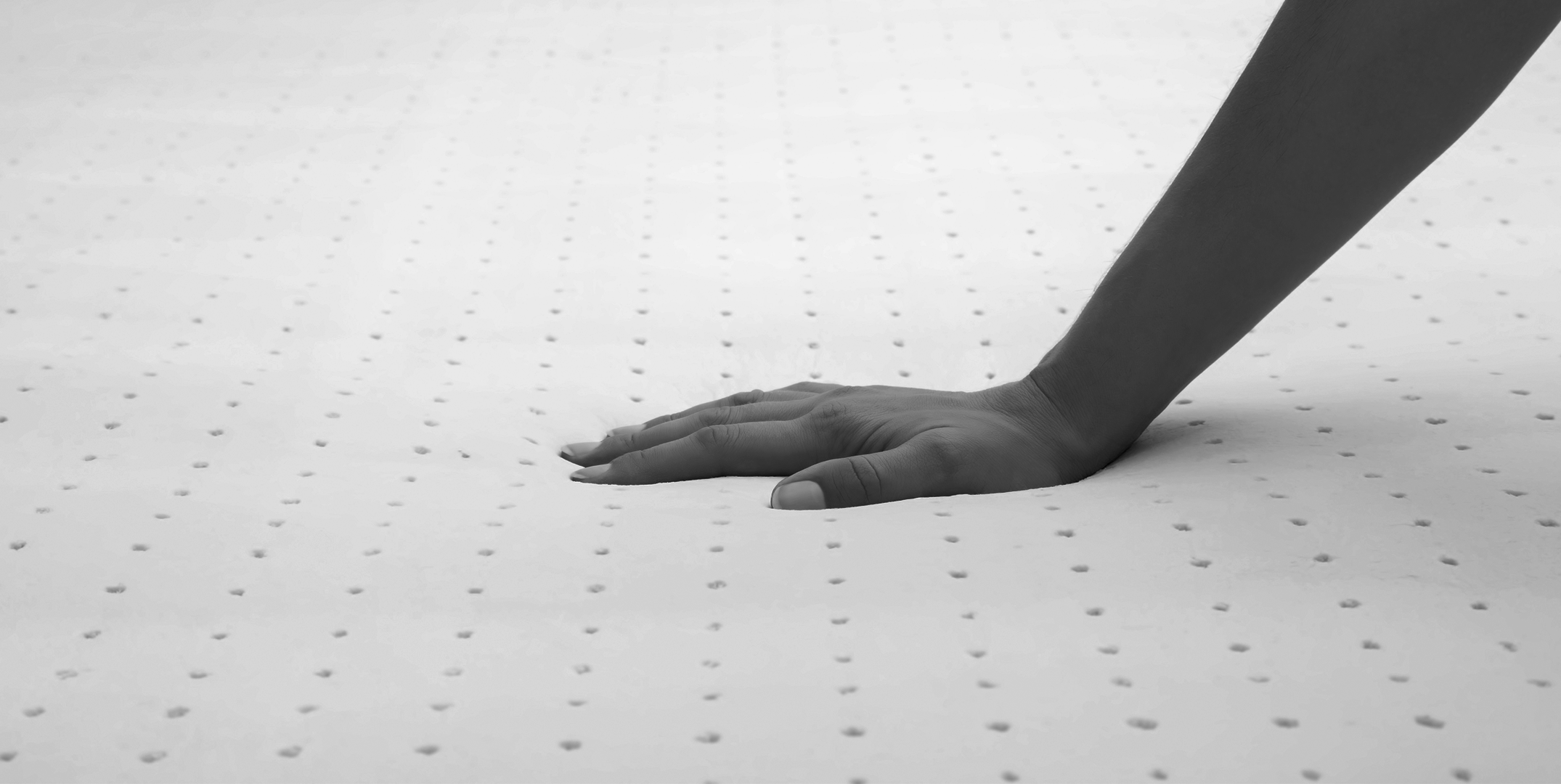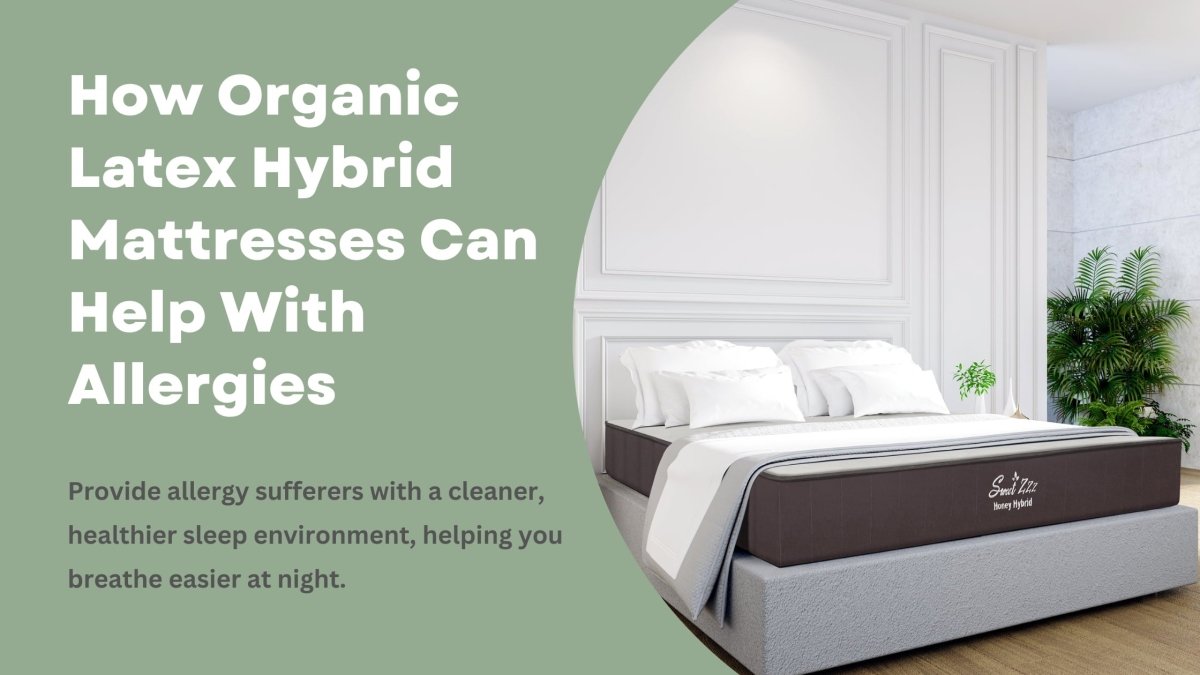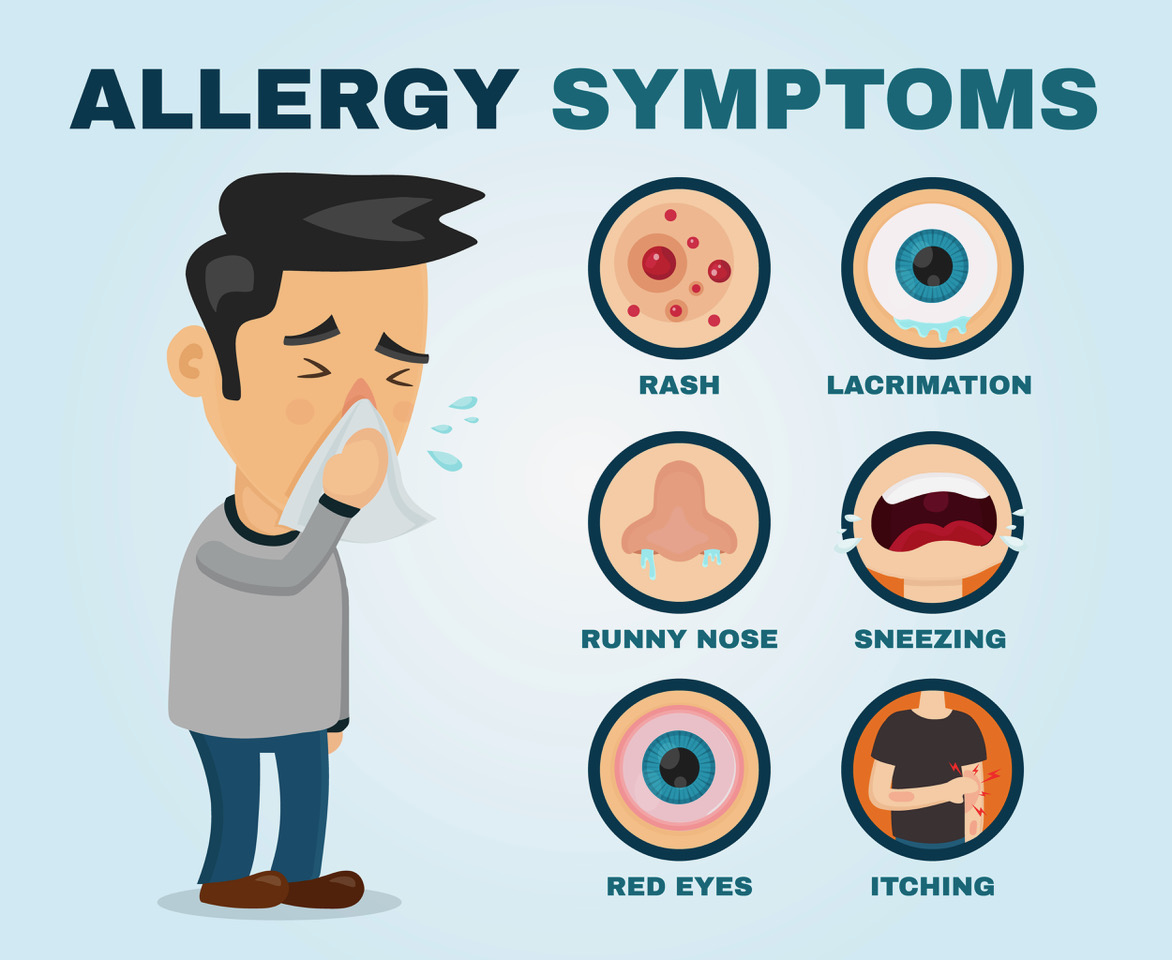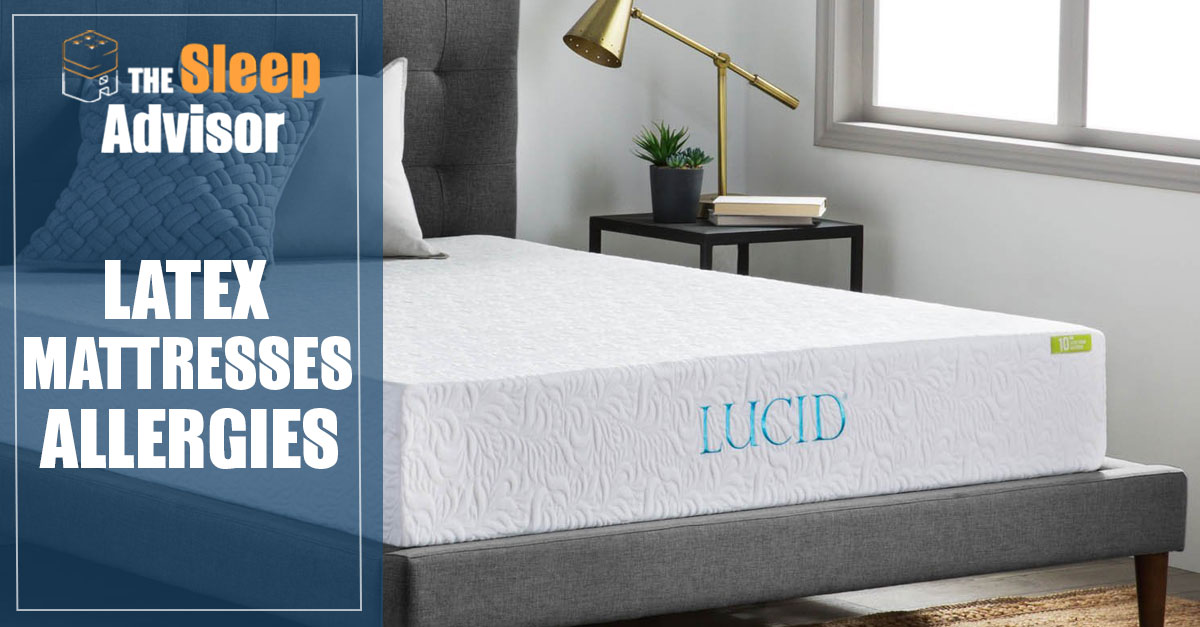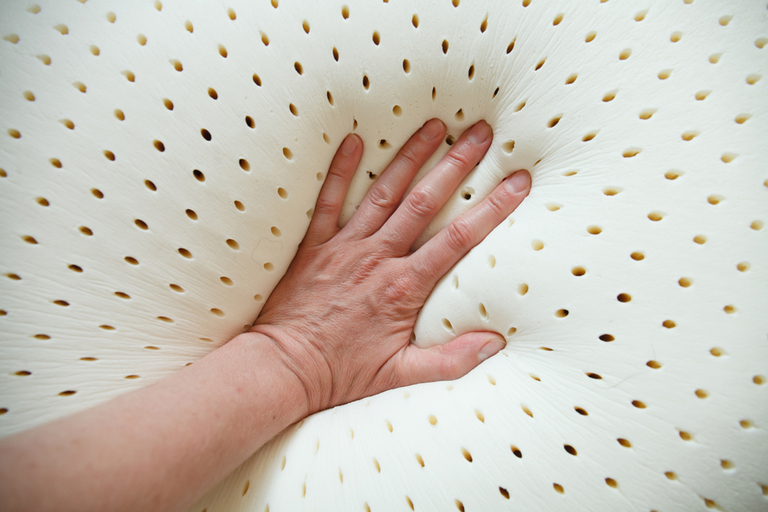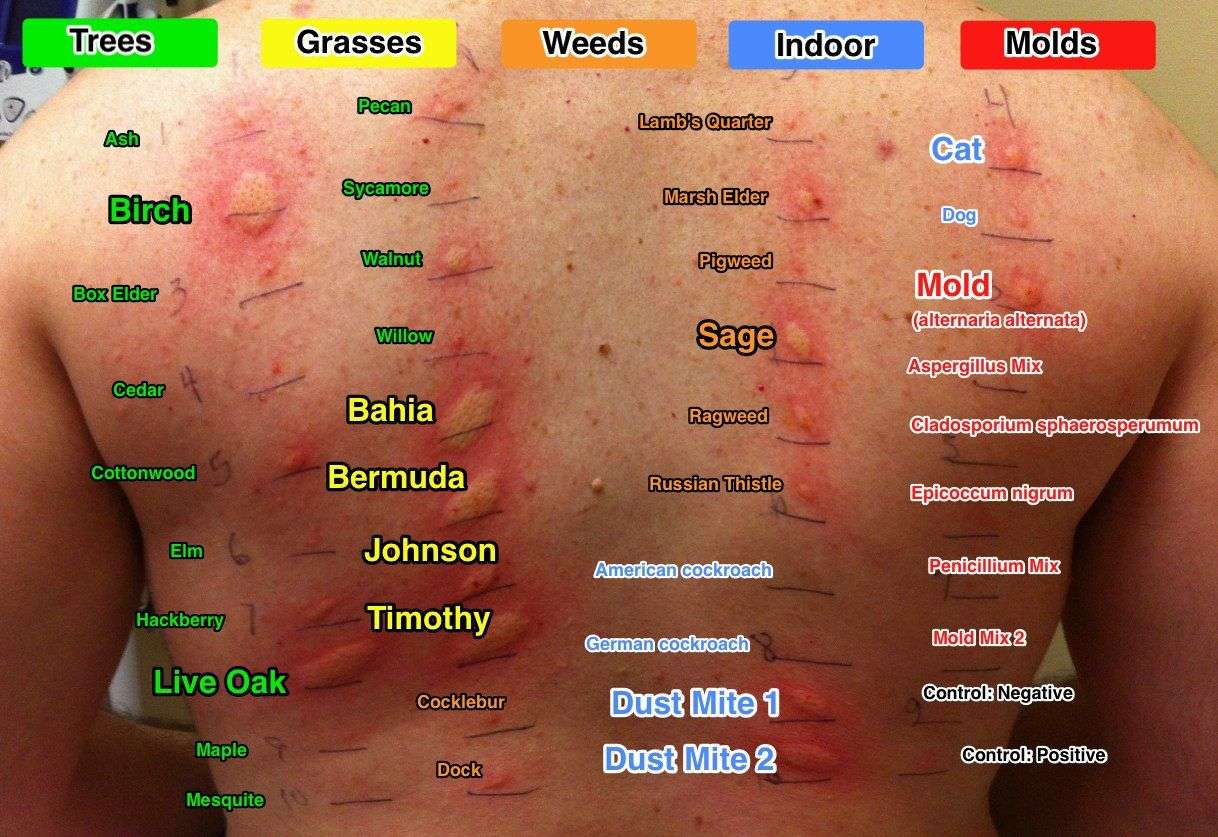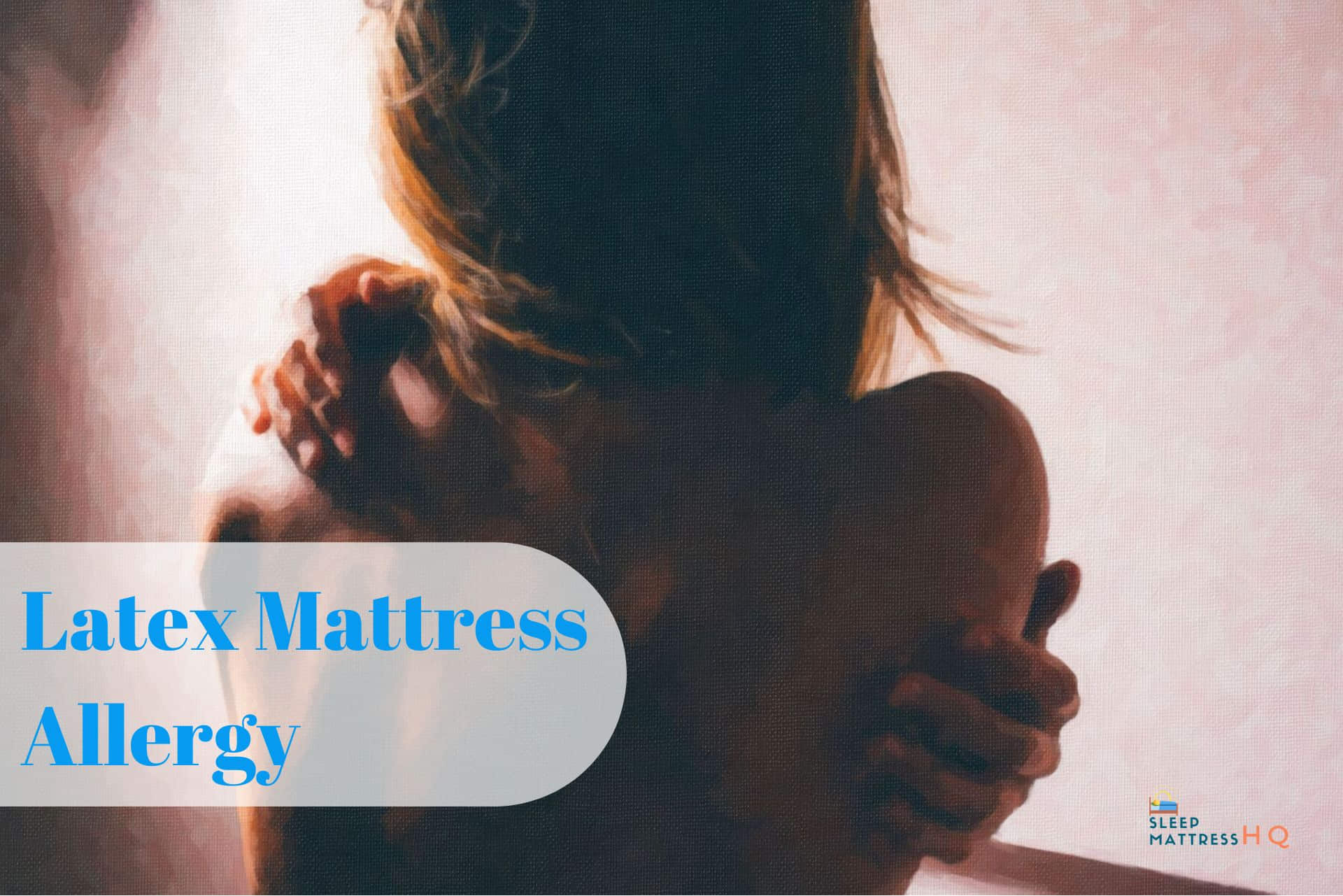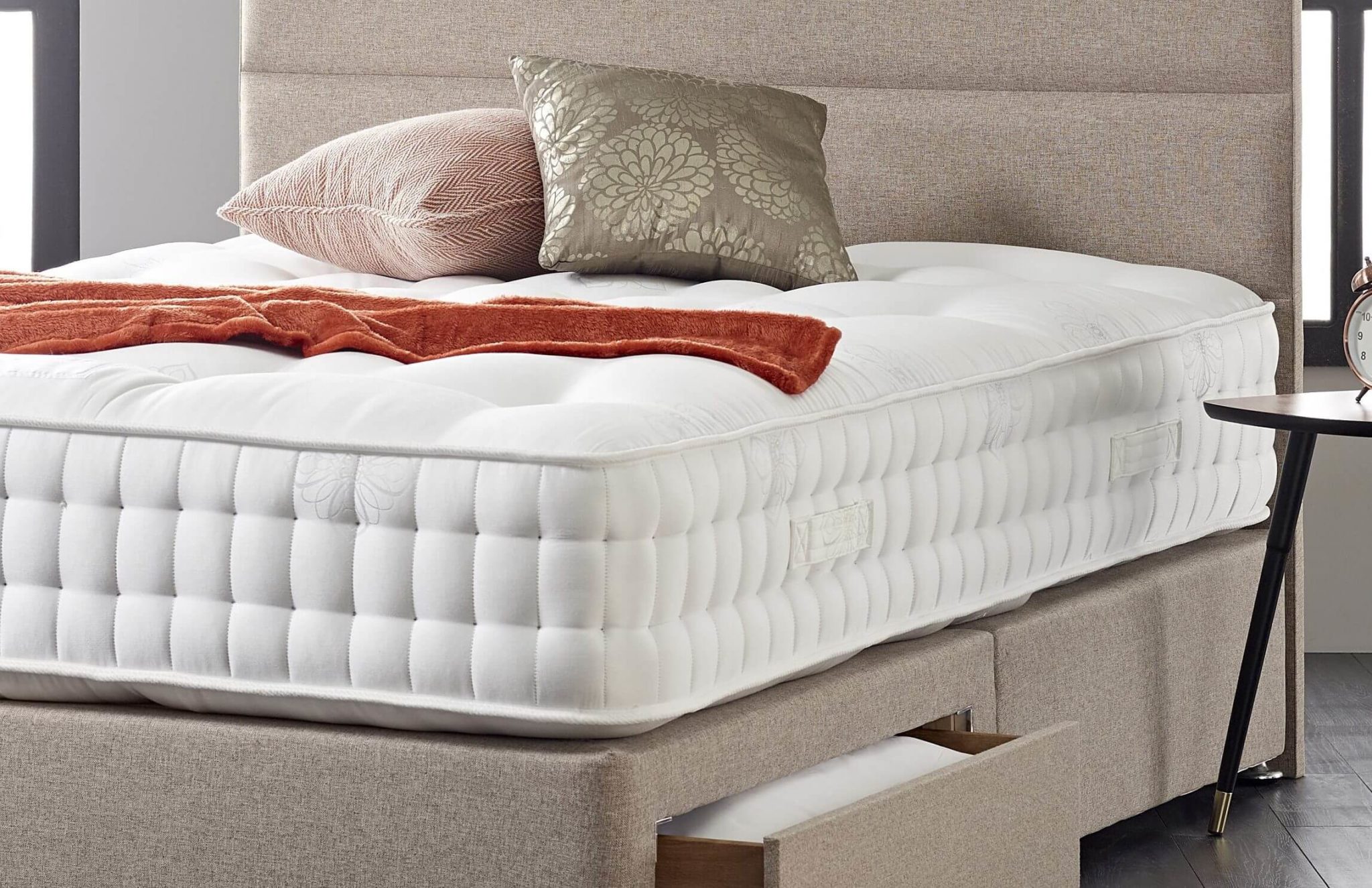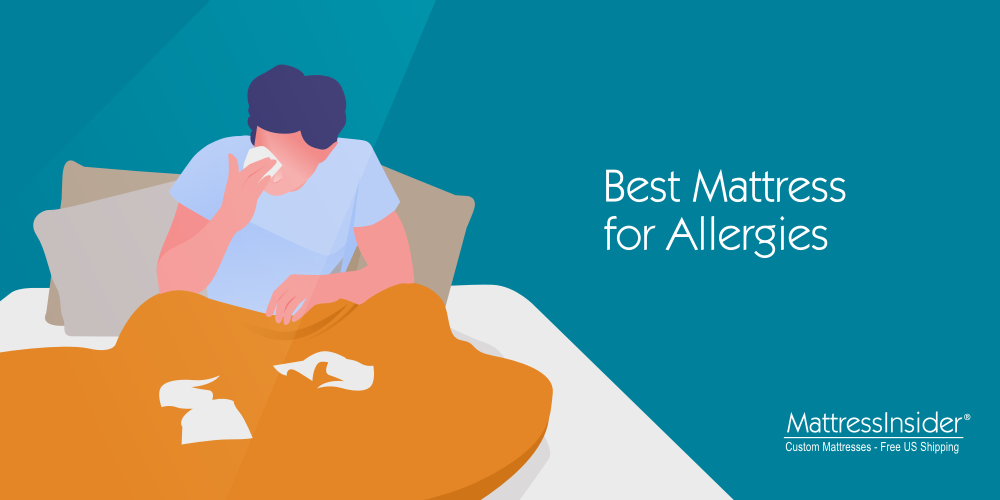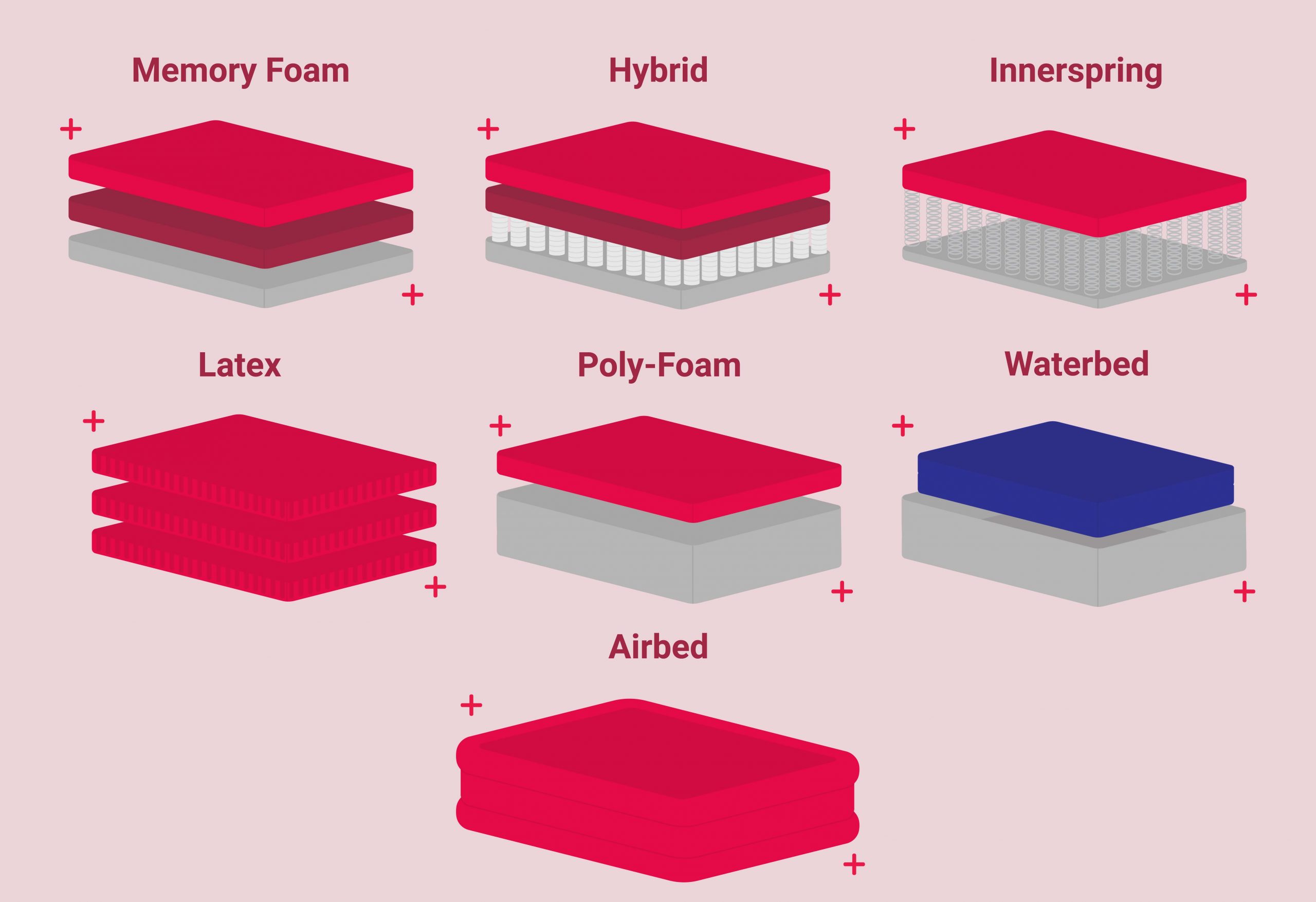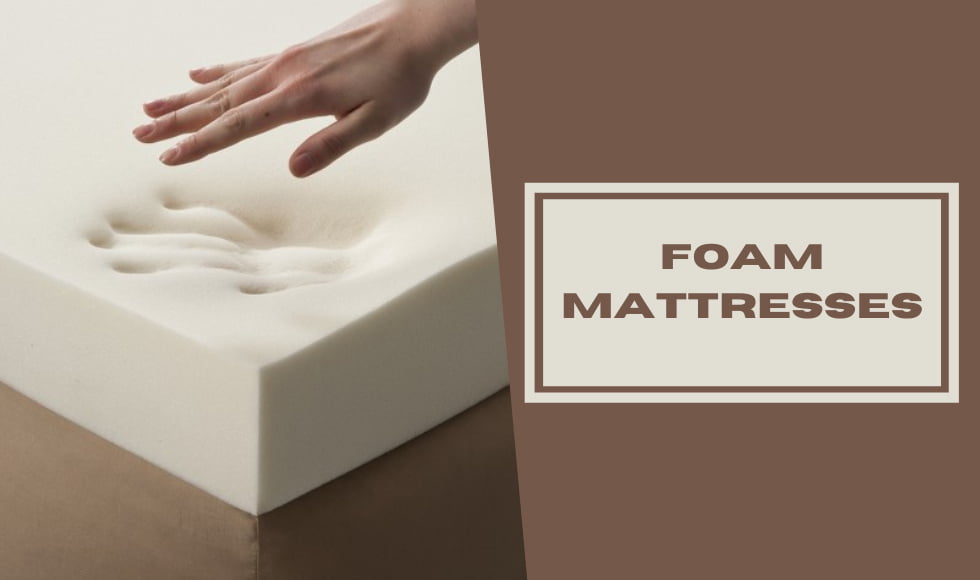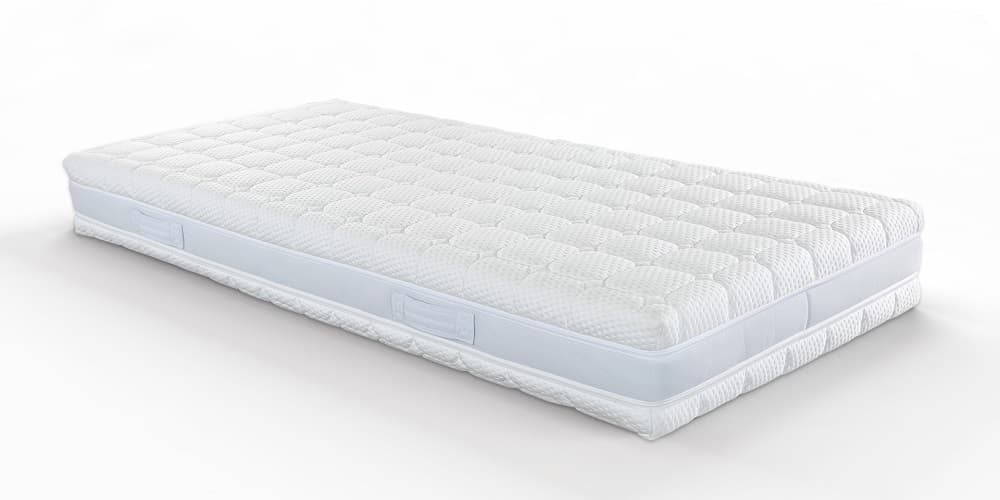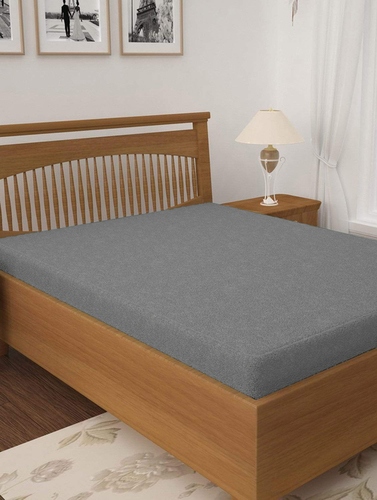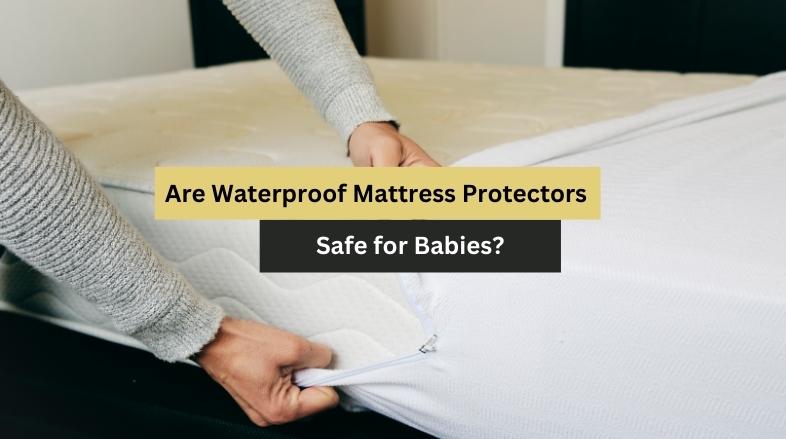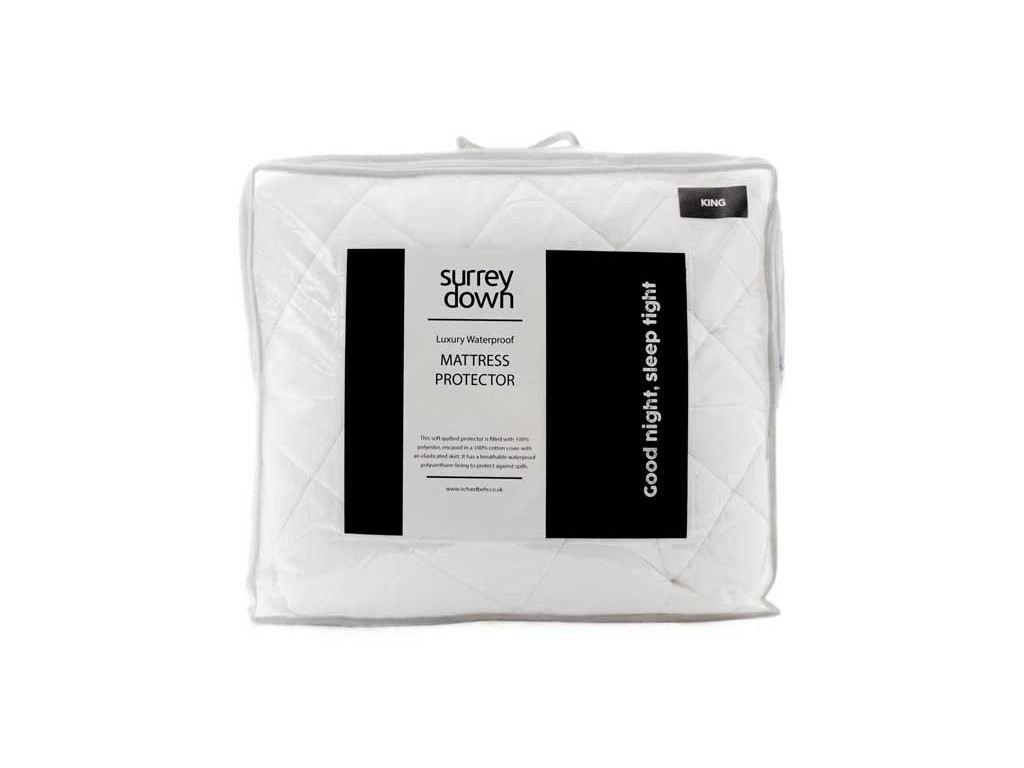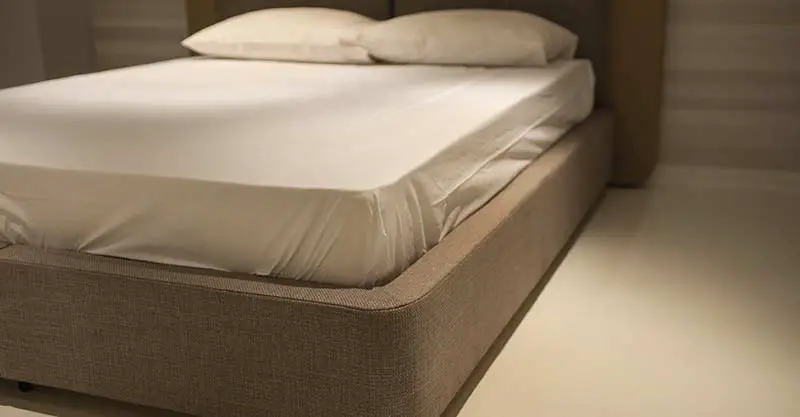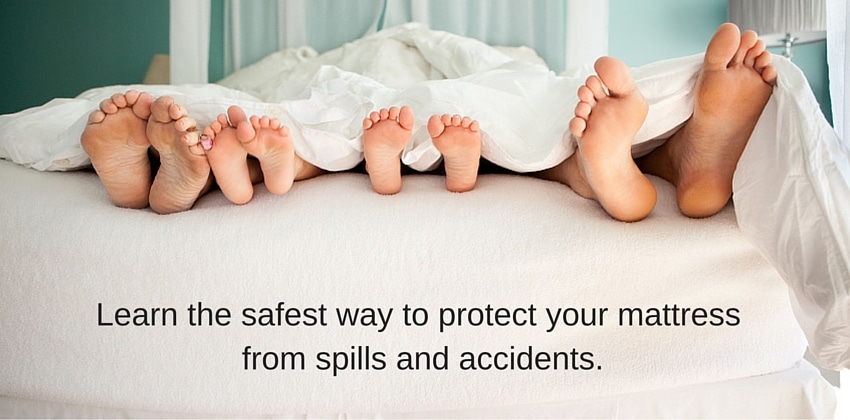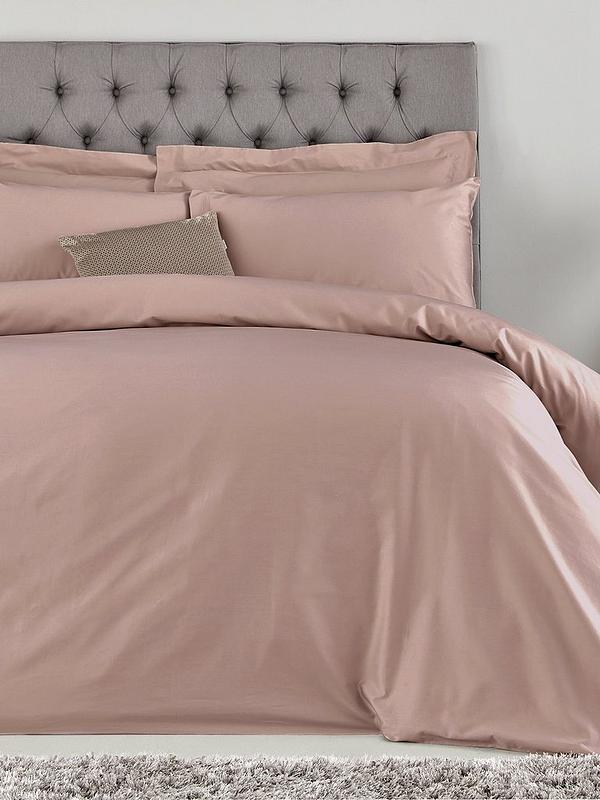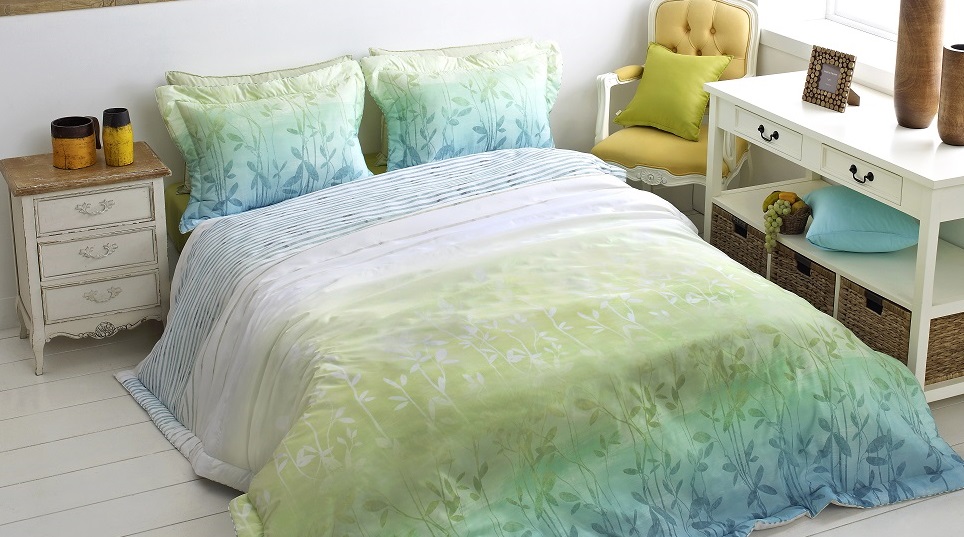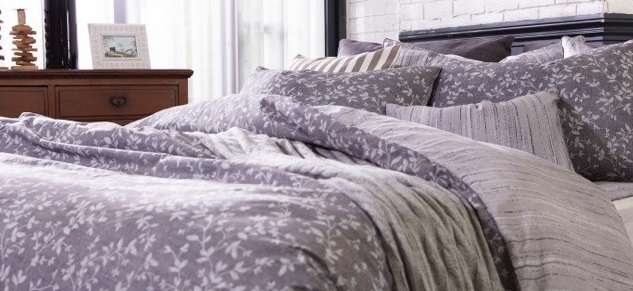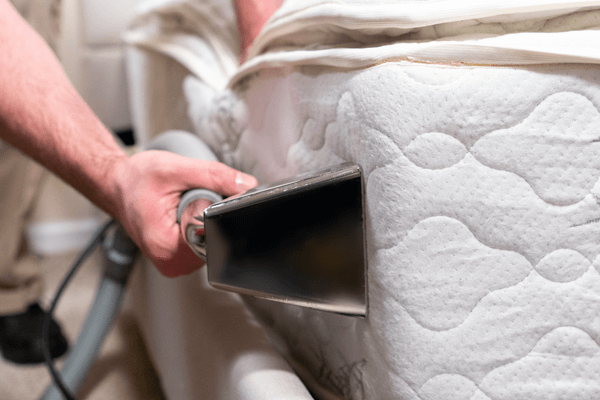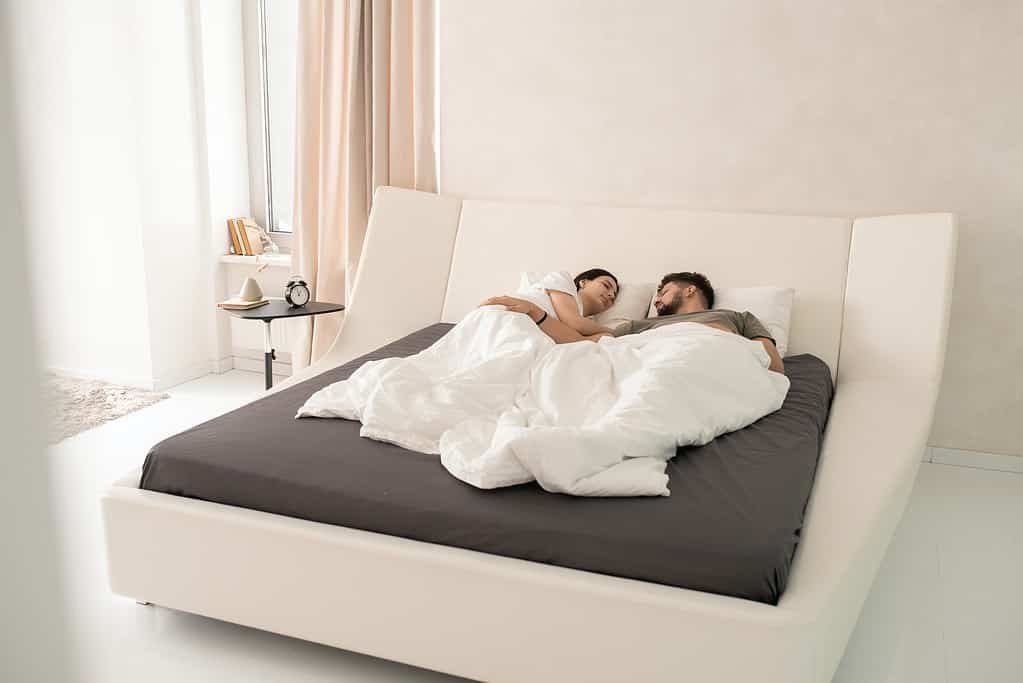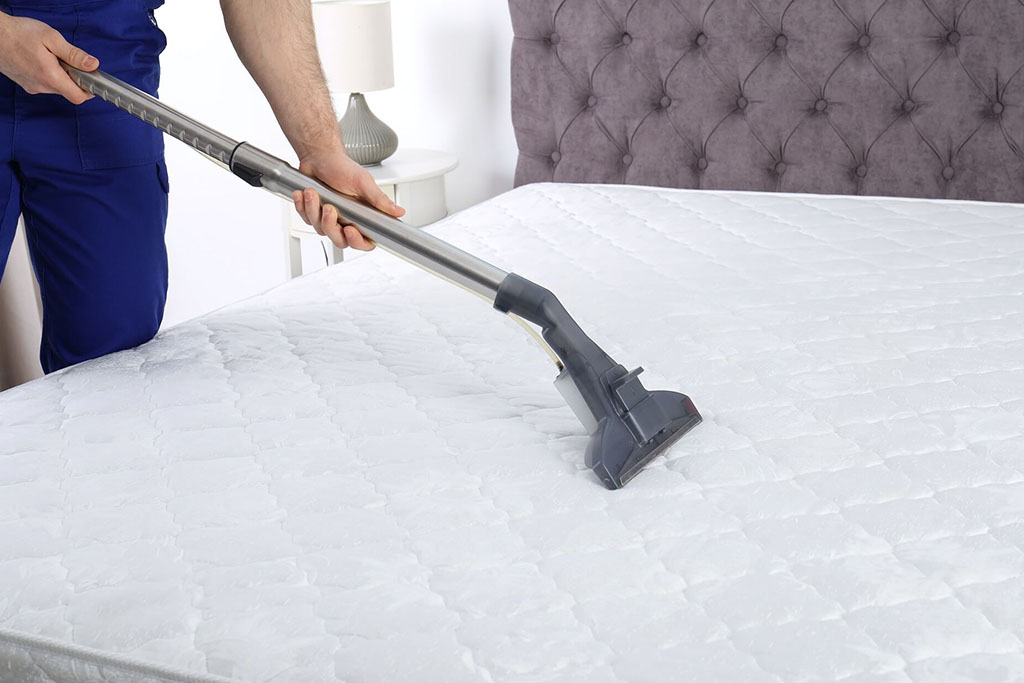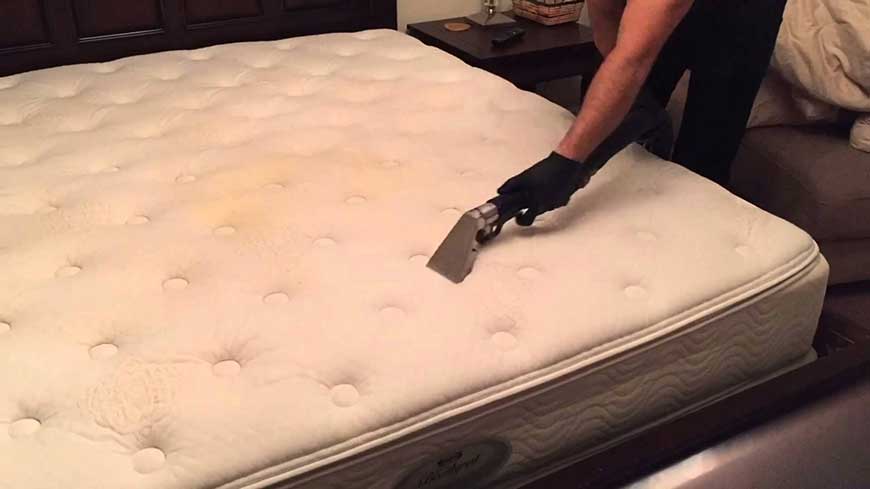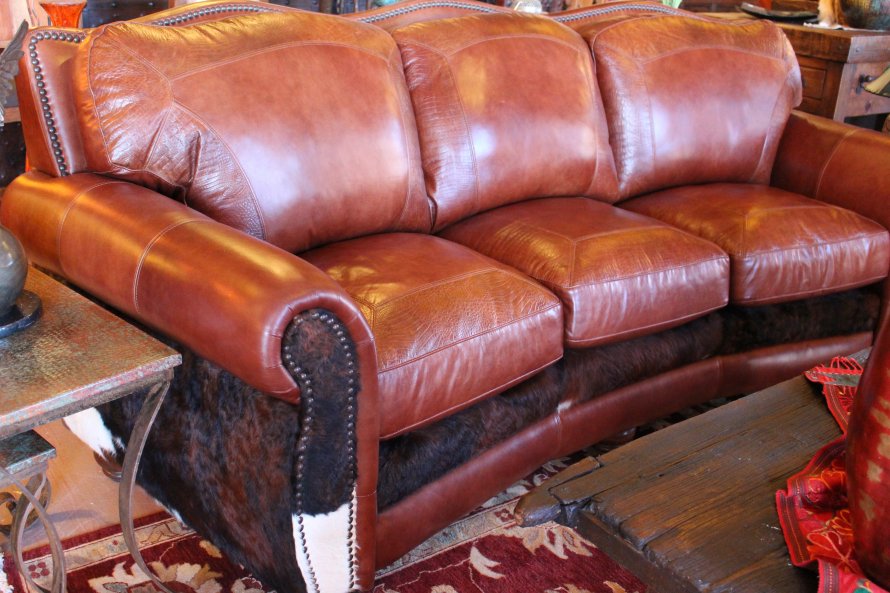If you suffer from allergies, you know how difficult it can be to get a good night's sleep. Constant sneezing, wheezing, and itching can leave you feeling exhausted and irritable. But did you know that your mattress could be exacerbating your symptoms? Dust mites, mold, and other allergens can easily accumulate in an old, worn-out mattress, making it a nightmare for allergy sufferers. That's why we've compiled a list of the best mattresses for people with allergies, so you can enjoy a restful and refreshing sleep every night.1. "The Best Mattress for Allergies: Our Top Picks for a Restful Sleep"
If you have allergies, it's important to choose a mattress that is hypoallergenic. This means that the materials used in the mattress are less likely to trigger allergies or cause irritation. When shopping for a hypoallergenic mattress, look for those made with natural materials such as organic cotton, wool, or latex. Our top picks for hypoallergenic mattresses include the Zoned Support Organic Latex Mattress and the Avocado Green Mattress, both of which are made with certified organic materials.2. "Hypoallergenic Mattresses: What to Look For and Our Top Recommendations"
For those with severe allergies, an organic mattress may be the best option. These mattresses are made with all-natural materials that are free from chemicals and toxins, making them less likely to cause allergic reactions. Some popular options include the Naturepedic Organic Mattress and the My Green Mattress, both of which are made with organic cotton and natural latex. Not only are these mattresses better for your health, but they are also more environmentally friendly.3. "Organic Mattresses for Allergies: A Guide to the Best Natural Options"
Memory foam mattresses have become increasingly popular in recent years, and for good reason. They conform to your body shape, providing excellent support and pressure relief. But for allergy sufferers, it's important to choose a memory foam mattress that is hypoallergenic and free from harmful chemicals. Our top picks include the Tuft & Needle Mint Mattress and the Casper Original Mattress, both of which are made with CertiPUR-US certified foam, meaning they are free from harmful chemicals and allergens.4. "Memory Foam Mattresses for Allergies: Benefits and Top Picks"
Latex mattresses are known for their durability and breathability, making them a great choice for allergy sufferers. Latex is naturally resistant to dust mites and mold, making it a hypoallergenic option. When looking for a latex mattress, make sure it is made with natural latex, as synthetic latex can still trigger allergies. Our top picks for latex mattresses include the PlushBeds Botanical Bliss Mattress and the Birch Natural Mattress, both of which are made with 100% natural latex and organic cotton.5. "Latex Mattresses for Allergies: What You Need to Know and Our Top Picks"
Innerspring mattresses have been around for a long time and are still a popular choice for many people. However, they can be a breeding ground for dust mites and other allergens if not properly maintained. Look for innerspring mattresses with high-quality materials and a hypoallergenic cover, such as the Saatva Classic Mattress and the Brooklyn Bedding Aurora Mattress. These mattresses are also designed with motion isolation, meaning you won't be disturbed by your partner's movements.6. "Innerspring Mattresses for Allergies: A Comprehensive Guide and Top Picks"
Air mattresses may not be the first choice for allergy sufferers, but they can be a good temporary solution or a great option for camping. When choosing an air mattress, make sure it comes with a hypoallergenic cover and is made with materials that are resistant to mold and mildew. Our top picks include the SoundAsleep Dream Series Air Mattress and the Insta-Bed Raised Air Mattress, both of which are designed to be hypoallergenic and comfortable.7. "Air Mattresses for Allergies: Pros, Cons, and Our Top Recommendations"
One of the best ways to protect your mattress from allergens is by using a waterproof mattress protector. These covers not only keep your mattress clean and free from spills and stains, but they also act as a barrier against dust mites and other allergens. Look for waterproof mattress protectors that are made with hypoallergenic materials, such as the SafeRest Premium Hypoallergenic Waterproof Mattress Protector and the Linenspa Premium Smooth Fabric Mattress Protector.8. "Waterproof Mattress Protectors for Allergies: Our Top Picks for a Clean and Healthy Bed"
In addition to a hypoallergenic mattress, it's important to invest in anti-allergy bedding to further reduce your exposure to allergens. Look for bedding made with natural materials and without harsh chemicals or dyes. Our top picks include organic cotton sheets, wool comforters, and bamboo pillows. These materials are breathable and less likely to harbor allergens.9. "Anti-Allergy Bedding: A Guide to the Best Options for a Restful Night's Sleep"
No matter how hypoallergenic your mattress is, it's still important to regularly clean and maintain it to keep allergens at bay. Here are some tips for mattress cleaning: vacuum your mattress regularly, use a mattress protector, wash your bedding in hot water, and air out your mattress in the sun. You can also use a steam cleaner or a mild cleaning solution to deep clean your mattress. By following these tips, you can enjoy a dust-free and allergy-free bed for a better night's sleep. In conclusion, finding the best mattress for allergies may require some research and careful consideration, but it's well worth it for a restful and healthy sleep. Whether you choose an organic, hypoallergenic, or memory foam mattress, make sure to regularly clean and maintain it to keep allergens at bay. With the right mattress and bedding, you can say goodbye to sleepless nights and wake up feeling refreshed and rejuvenated.10. "Mattress Cleaning for Allergies: Tips and Tricks for a Dust-Free Bed"
The Best Mattress for People with Allergies

What is an Allergy?
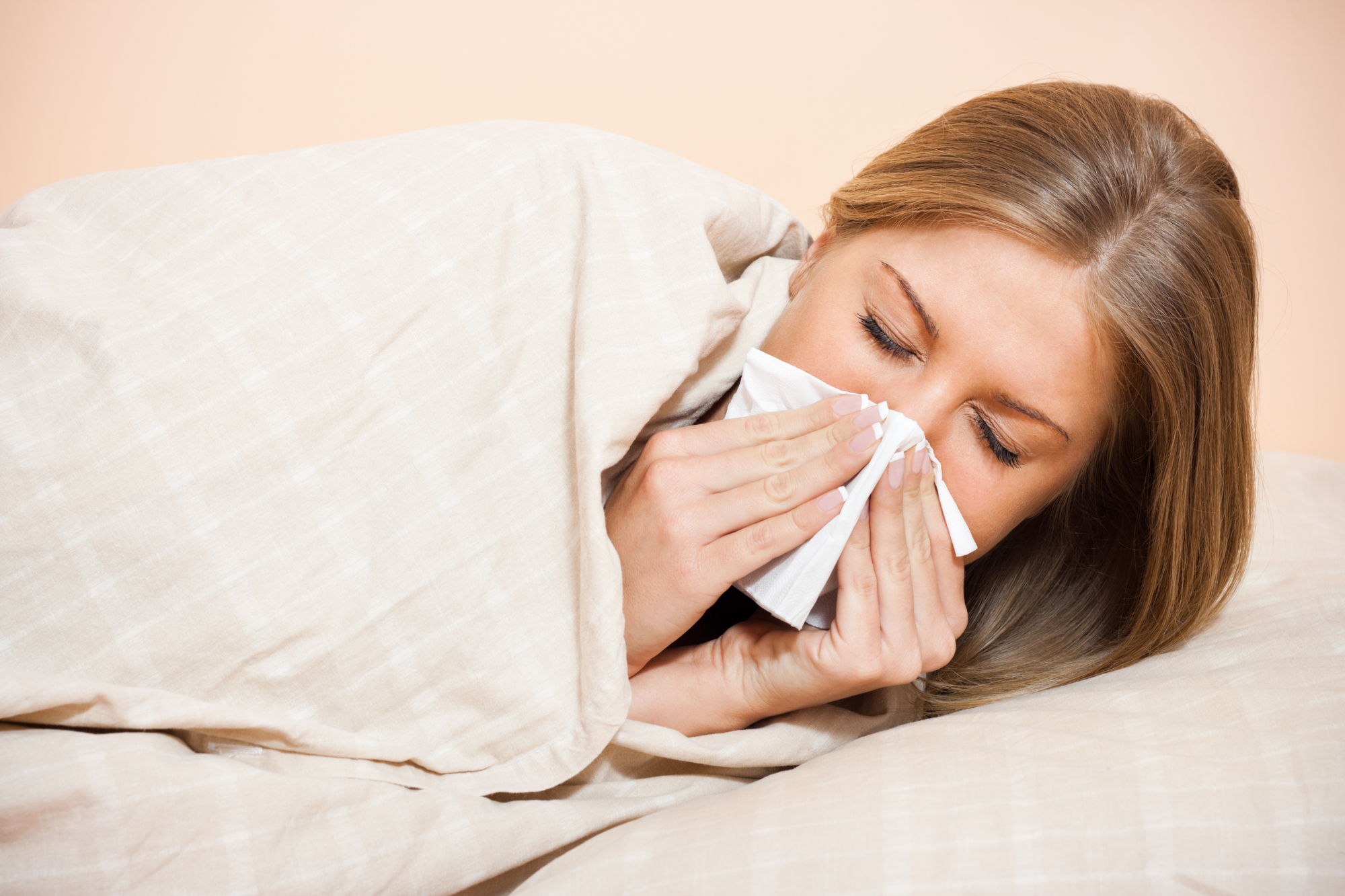 An allergy is a condition where the immune system reacts to a substance that is usually harmless to most people. These substances, called allergens, can be found in various forms such as dust mites, pollen, pet dander, and mold. When a person with allergies comes into contact with these allergens, their immune system responds by releasing histamines, which causes symptoms like sneezing, itching, and watery eyes. For people with allergies, finding the right mattress can be crucial in reducing their exposure to these allergens and getting a good night's sleep.
An allergy is a condition where the immune system reacts to a substance that is usually harmless to most people. These substances, called allergens, can be found in various forms such as dust mites, pollen, pet dander, and mold. When a person with allergies comes into contact with these allergens, their immune system responds by releasing histamines, which causes symptoms like sneezing, itching, and watery eyes. For people with allergies, finding the right mattress can be crucial in reducing their exposure to these allergens and getting a good night's sleep.
The Importance of a Hypoallergenic Mattress
 One of the best ways to prevent allergies is to reduce exposure to allergens. One of the ways to do this is by investing in a hypoallergenic mattress. A hypoallergenic mattress is designed to prevent the accumulation of dust mites, mold, and other allergens. These mattresses are made with materials that resist the growth of allergens and are easy to clean, making them ideal for people with allergies.
One of the best ways to prevent allergies is to reduce exposure to allergens. One of the ways to do this is by investing in a hypoallergenic mattress. A hypoallergenic mattress is designed to prevent the accumulation of dust mites, mold, and other allergens. These mattresses are made with materials that resist the growth of allergens and are easy to clean, making them ideal for people with allergies.
Features to Look for in a Mattress for Allergies
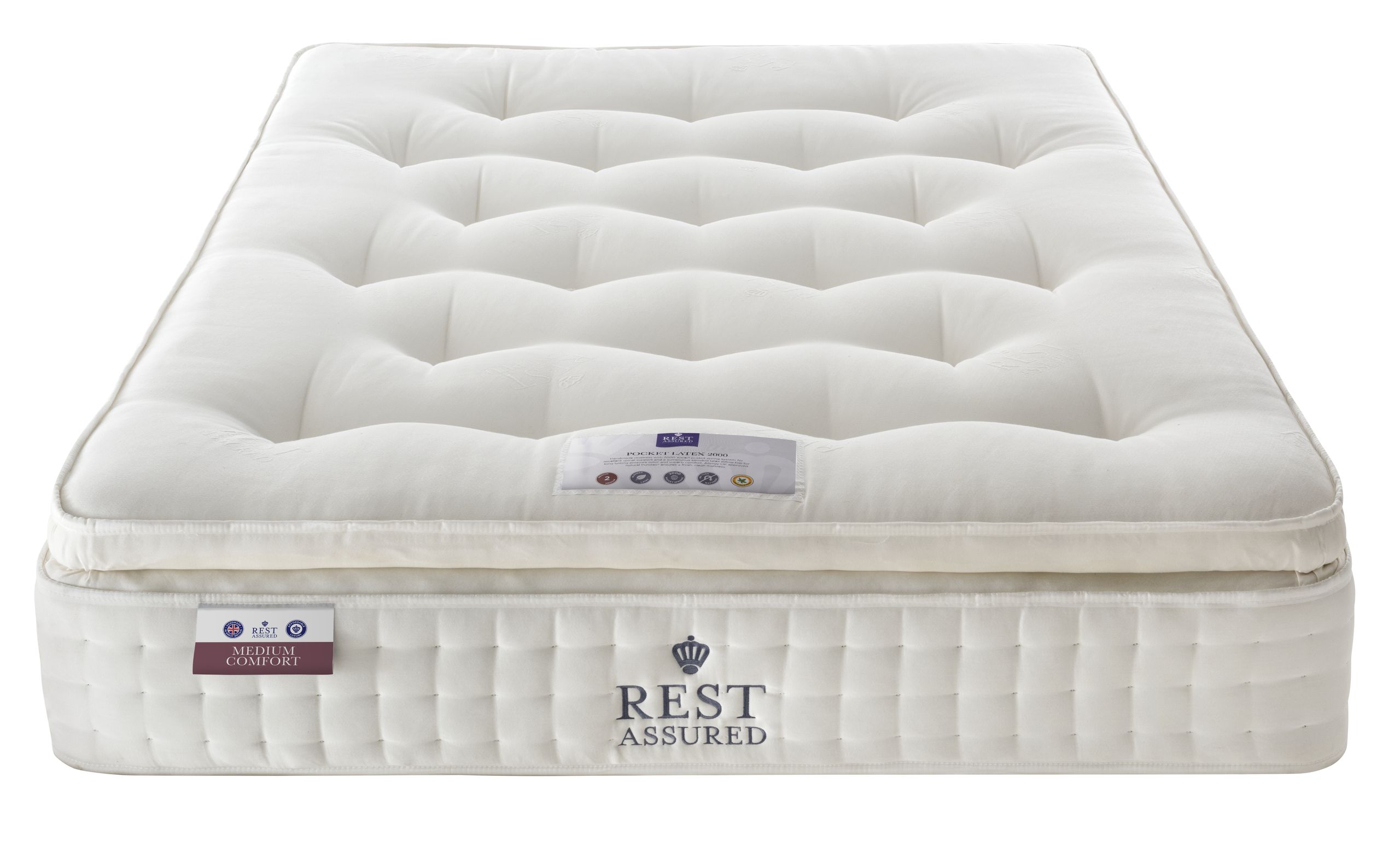 When looking for the best mattress for people with allergies, there are a few features to keep in mind. The first is the material used in the mattress. Natural materials like latex and organic cotton are less likely to harbor allergens compared to synthetic materials. Additionally, look for mattresses with a high thread count and tight weave as this can prevent allergens from seeping into the mattress.
Another important feature to consider is the type of support the mattress provides. A mattress with good support can help alleviate pressure points and promote better sleep, which is essential for people with allergies who may experience symptoms like congestion and headaches when not well-rested.
When looking for the best mattress for people with allergies, there are a few features to keep in mind. The first is the material used in the mattress. Natural materials like latex and organic cotton are less likely to harbor allergens compared to synthetic materials. Additionally, look for mattresses with a high thread count and tight weave as this can prevent allergens from seeping into the mattress.
Another important feature to consider is the type of support the mattress provides. A mattress with good support can help alleviate pressure points and promote better sleep, which is essential for people with allergies who may experience symptoms like congestion and headaches when not well-rested.
The Best Types of Mattresses for Allergies
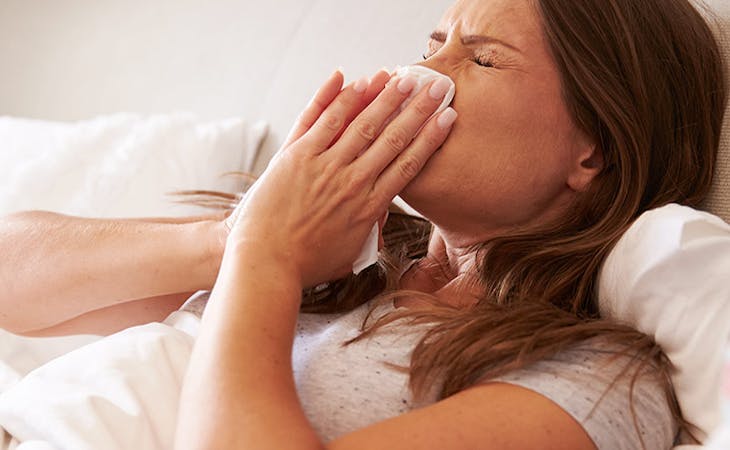 There are several types of mattresses that are suitable for people with allergies. Memory foam mattresses, for example, are resistant to dust mites and are easy to clean. Latex mattresses are also a good option as they are naturally hypoallergenic and resistant to mold, mildew, and dust mites. Additionally, air mattresses can be a good choice as they can be easily cleaned and have fewer spaces for allergens to accumulate.
There are several types of mattresses that are suitable for people with allergies. Memory foam mattresses, for example, are resistant to dust mites and are easy to clean. Latex mattresses are also a good option as they are naturally hypoallergenic and resistant to mold, mildew, and dust mites. Additionally, air mattresses can be a good choice as they can be easily cleaned and have fewer spaces for allergens to accumulate.
Conclusion
 In conclusion, investing in a hypoallergenic mattress can greatly benefit those with allergies. By choosing a mattress with the right materials, support, and type, individuals can reduce their exposure to allergens and get a good night's sleep. Remember to regularly clean and maintain the mattress to prevent the buildup of allergens. With the right mattress, people with allergies can rest easy and wake up feeling refreshed and symptom-free.
In conclusion, investing in a hypoallergenic mattress can greatly benefit those with allergies. By choosing a mattress with the right materials, support, and type, individuals can reduce their exposure to allergens and get a good night's sleep. Remember to regularly clean and maintain the mattress to prevent the buildup of allergens. With the right mattress, people with allergies can rest easy and wake up feeling refreshed and symptom-free.
